Ag Innovation Rewarded
Anvil Metals Builds Future with Farmers

Williams Baptist University
Arkansas's Work College
Deep Dive Q&A
With Sen. John Boozman



Anvil Metals Builds Future with Farmers

Williams Baptist University
Arkansas's Work College
With Sen. John Boozman


AgriCulture is not a podcast about raising crops or cows but how farmers navigate challenges and cultivate meaningful lives. They tell their stories, struggles and satisfactions from the farm in Arkansas.
The Arkansas AgCast is a weekly podcast discussing the latest news, trends and issues impacting Arkansas farmers and ranchers. Plus, occassional DeepDive episodes take the conversations further.
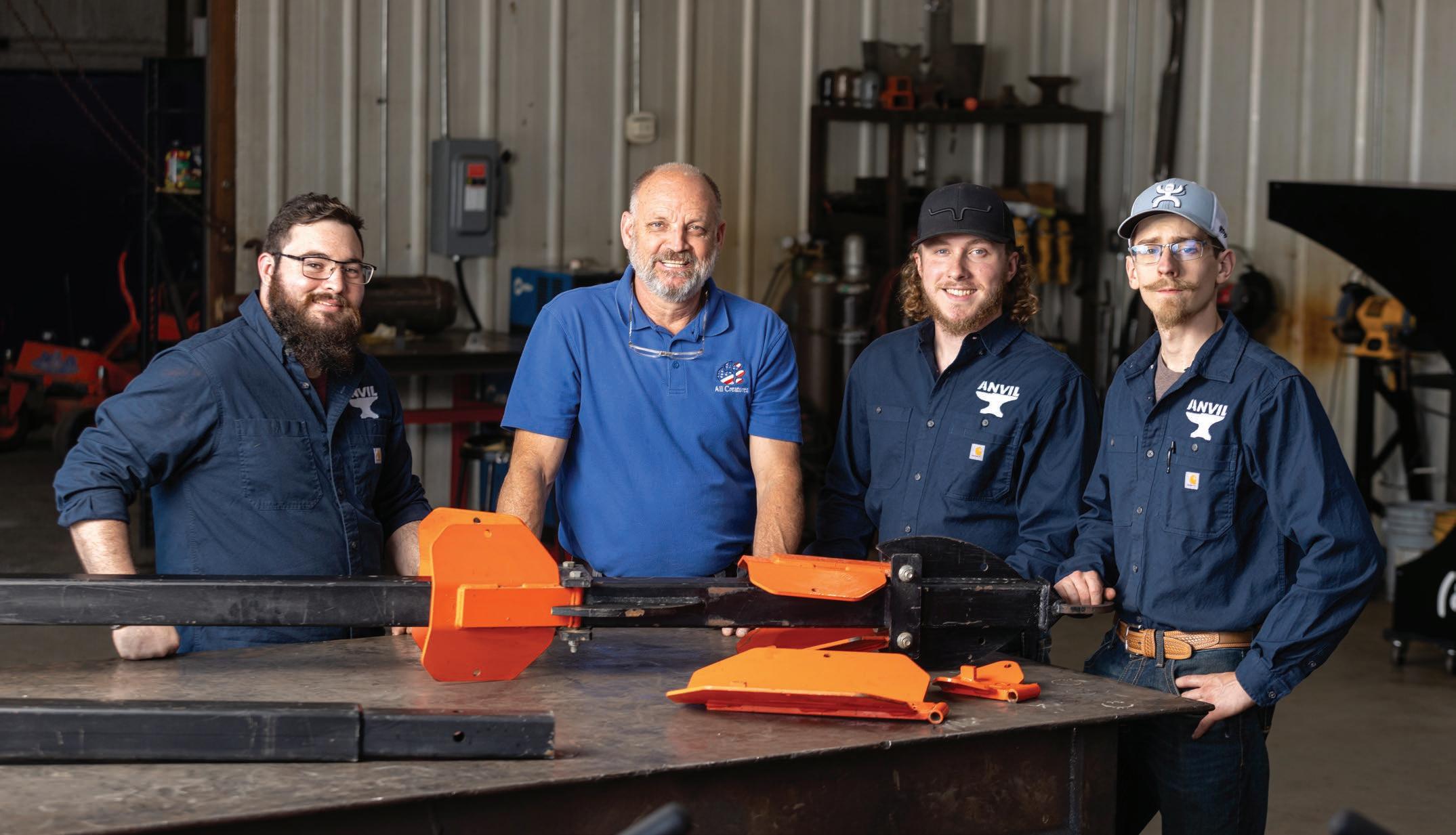
5 / My View From the Front Porch Dan Wright
7 / Serving Farmers, Serving You Jarrod Yates
8 / Cover Story: Iron Sharpening Iron Anvil Metals Wins Inaugural Ag Innovation Challenge
15 / A View From the Counties
18 / Williams Works for Agriculture Arkansas's Work College Puts Students to Work
24 / Arkansas Ag Hall of Fame Adds Six
28 / Deep Dive with Sen. John Boozman
Ranking Member of Senate Ag Committee Discusses Farm Bill
32 / Taste Arkansas Zucchini Bread Recipe
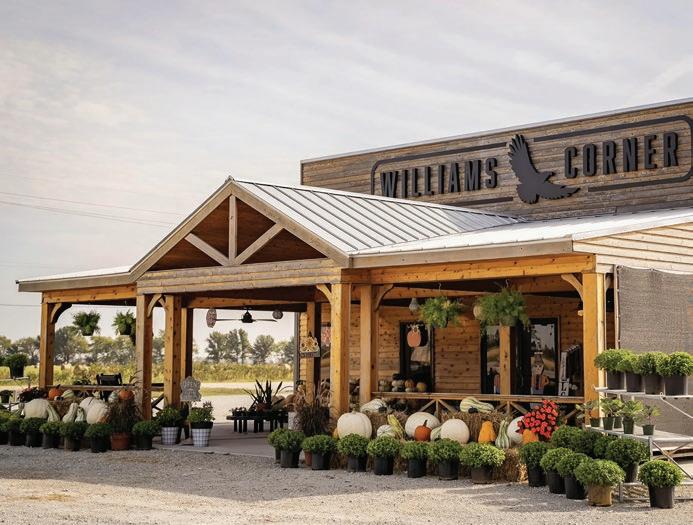

by DAN WRIGHT ARFB PRESIDENT
After a long day on the farm, I normally sit on the porch and reflect on the day’s accomplishments, the things not finished as well as the tasks that still need my attention. I enjoy that time on the porch. Since my election as president of Arkansas Farm Bureau, the focus on the tasks that still need attention has become more obvious. I find myself categorizing things: What must be done now, what can wait a week and what is just not that important? I believe we all do that in some form or fashion.
As spring unfolds, my thoughts are focused on hay season and the preparation involved, such as fertilizer, herbicide, equipment repair and maintenance. The greenery of the farm signifies a new beginning. Farmers and ranchers are always looking forward to that new beginning. It’s the time of year our grass begins to grow, trees turn greener and pollen flows like yellow powder in the air (which is not good for my allergies).
I enjoy the sounds of rain on the roof and listening to the creek running behind our house. I love the smell of freshly turned dirt, although I don’t get that much in western Arkansas. But when I’m on the road in eastern Arkansas I sometimes pull over and take in that smell that reminds me of spring. Spring marks a new beginning.
While growing up, spring seemed to start with the celebration of our risen savior. As a child, I enjoyed Easter for the chance to hunt candied eggs in the fresh green grass. As most folks know, my faith in Christ is a very real part of my life. Unlike when I was a child, I now realize the importance of Easter and the celebration it brings to my heart. What greater new beginning could we ask for?
After Easter, we always looked forward to Mother’s Day. As kids, my brother, sister and I would try to make or buy mom something special to see her face light up. Today is filled mostly with memories, because Mom now celebrates Mother’s Day with her mother in heaven. I miss those special times sitting on the porch talking about the events of the day. Those could be interesting because Mom and I didn’t share the same political views. That made for interesting conversations during election years. These days, Belinda and I are fortunate to celebrate Mother’s Day with her mom at our home church in Y City. We cherish those times.
The duties of the president of Arkansas Farm Bureau require me to travel quite a bit and take part in different interviews while representing our members. During those interviews, I have sometimes referred to the “new era at Farm Bureau.” That’s not a reference to being a new president, but when you look at our accomplishments over the past few months, it seems like a new beginning. We have three new innovation programs this year, including the launch of a political action committee (AgPAC), a health benefit plan for members that we expect to roll out later this year and a new grassroots leadership program.
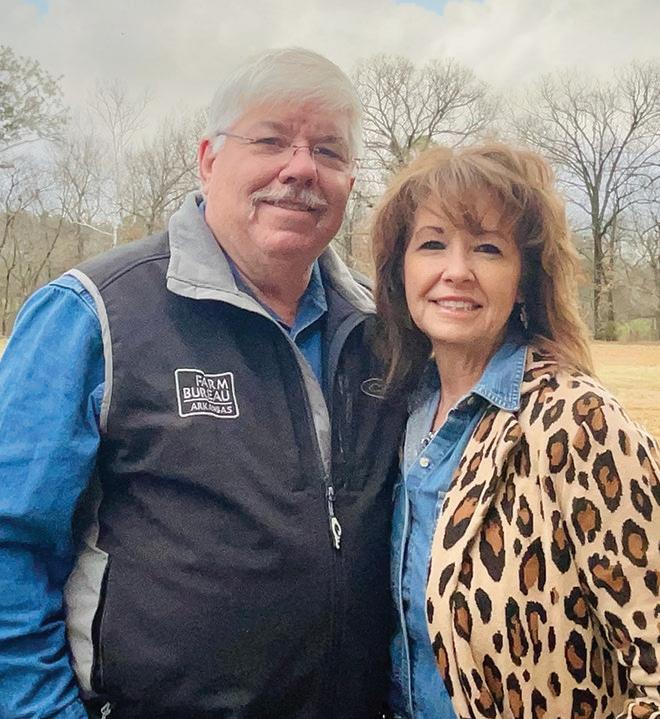
Let’s start with the Arkansas Grassroots Leadership (AG Leaders) program. We feel like we have taken our leadership to the next level with this new program, which replaces President’s Leadership Council. AG Leaders will provide training and resources for potential Farm Bureau Leaders like never before. This two-year program will involve potential leaders in all aspects of our organization at the county, state and national level.
We are excited about the new health benefit plan, which is going to help those who could fall between the cracks of current health care insurance. For those who cannot afford conventional health insurance and those not qualifying for federal subsidies, this could be a helpful option.
During the ArFB 2023 State Convention, delegates approved the formation of a PAC for the first time in ArFB history. The AgPAC will be a valuable tool and help ensure Farm Bureau’s voice is well understood.
I hope you make plans to join us July 25-26 for our Officers and Leaders Conference at the Embassy Suites in beautiful Jonesboro. The conference theme this year is Breaking Boundaries. Our staff is working hard to make this the best Officers and Leaders Conference. It’s been a while since we were last in Jonesboro, and we look forward to a great O&L Conference. The end of the conference will also mark the beginning of our Women’s Leadership Conference, which will take place July 26-27 at the same location. All told, we expect upwards of 700 people to join us for these sessions.
May the blessing of God be on you and your family.
OFFICIAL PUBLICATION OF ARKANSAS FARM BUREAU FEDERATION
Official membership publication of Arkansas Farm Bureau Federation mailed to almost 190,000 member-families.
SUBSCRIPTIONS
Included in membership dues
ARKANSAS FARM BUREAU OFFICERS:
President / Dan Wright, Waldron
Vice President / Mike Freeze, Little Rock
Secretary/Treasurer / Terry Dabbs, Stuttgart
Executive Vice President / Jarrod Yates, Benton
DIRECTORS:
Magen Allen, Bismarck
Jon Carroll, Moro
Terry Dabbs, Stuttgart
Brad Doyle, Weiner
Jack Evans, Lonoke
Sherry Felts, Joiner
Chase Groves, Garland City
Jason Henson, Mount Judea
Terry Laster, Strong
Caleb Plyler, Hope
Bob Shofner, Centerton
Dana Stewart, Judsonia Joe Thrash, Houston
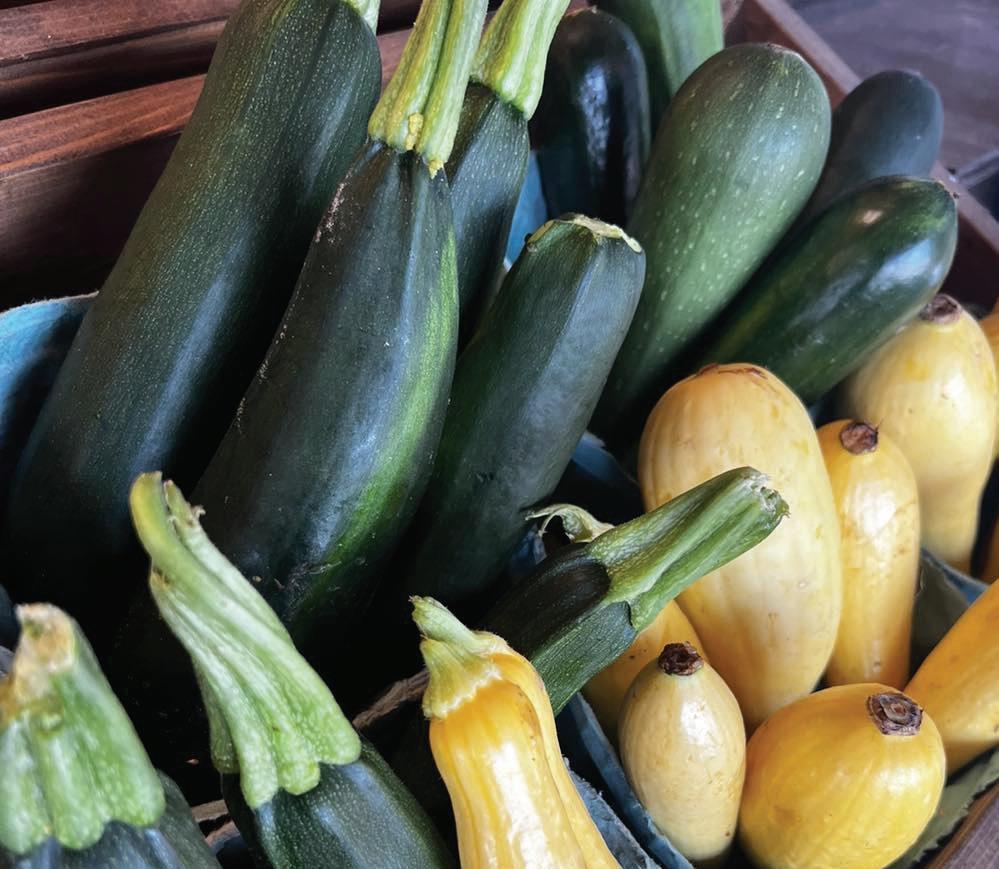
EX OFFICIO
Nita Cooper, Everton
Brad Peacock, Bald Knob
Kerry Stiles, Marianna Stewart Warner, West Memphis
Executive Editor / Steve Eddington
Contributing Writers / Shaylee Wallace Barber, Chad Hooten
Contact Chad Hooten at Arkansas Farm Bureau for advertising rates chad.hooten@arfb.com (501) 228-1274
Front Porch (USPS 019-879) is published quarterly by the Arkansas Farm Bureau Federation 10720 Kanis Rd., Little Rock, AR 72211
Periodicals Postage paid at Little Rock, AR
POSTMASTER: Send address changes to Rhonda Whitley at rhonda.whitley@arfb.com
Front Porch • P.O. Box 31 • Little Rock, AR 72203
Please provide membership number Issue #131
Publisher assumes no responsibility for any errors or omissions. All rights reserved. Reproduction without permission is prohibited.
The Arkansas Farm Bureau Federation reserves the right to accept or reject all advertising requests.

Tby JARROD YATES
ARKANSAS FARM BUREAU EXECUTIVE VICE PRESIDENT
here are many benefits of membership with Arkansas Farm Bureau, though few have a more meaningful effect than the scholarship programs we have available at the state level and with many of our county Farm Bureaus.
I want to share a story about the impact our scholarships have on students and families across our state. One example I learned of recently was Kaylee Breckling, who first received a $3,000 Farm Bureau scholarship in 2020 and earned the scholarship again in 2021. She used the scholarship awards her junior and senior years at Southern Arkansas University in Magnolia, where she earned two degrees — Ag Economics in 2021 and Accounting in 2022.
Today, Kaylee does just about everything at Simple Sod Farm near Haskell, including an extensive budget to keep costs in line every spring when the grass gets green on their 70-acre operation. Those scholarships – in the hands of deserving students – are having an impact in that community and will pay a lifetime of dividends to agriculture and Arkansas.
Arkansas Farm Bureau will announce another 12-13 winners of $3,000 Arkansas Farm Bureau Scholarship Foundation awards in July. Helping young people achieve their educational goals is import to Farm Bureau.
In addition to the Farm Bureau Scholarship Foundation awards, which are presented to juniors and seniors studying agriculture at an Arkansas college or university, we also offer the Romeo E. Short Scholarship to top students in the Bumpers College of Agriculture at the University of Arkansas and the Marvin Vines Scholarship to a student studying broadcast journalism at Arkansas State University in Jonesboro. Each year the Arkansas Farm Bureau and county Farm Bureau scholarship programs provide more than $160,000 in college scholarships to students across the state.
I’m proud of all the benefits available to Arkansas Farm Bureau members, especially those that result in encouraging stories like Kaylee’s. And your membership helps make those scholarships possible.
Other benefits of Arkansas Farm Bureau membership include everything from children’s car seats (It’s easier for both parents and a grandparent to have their own) at the most affordable price, to competitive interest rates on loans for farmers and homeowners through the Farm Bureau Bank. You can get up to $2,750 off a CAT equipment purchase or lease, a $500 break on a new Ford
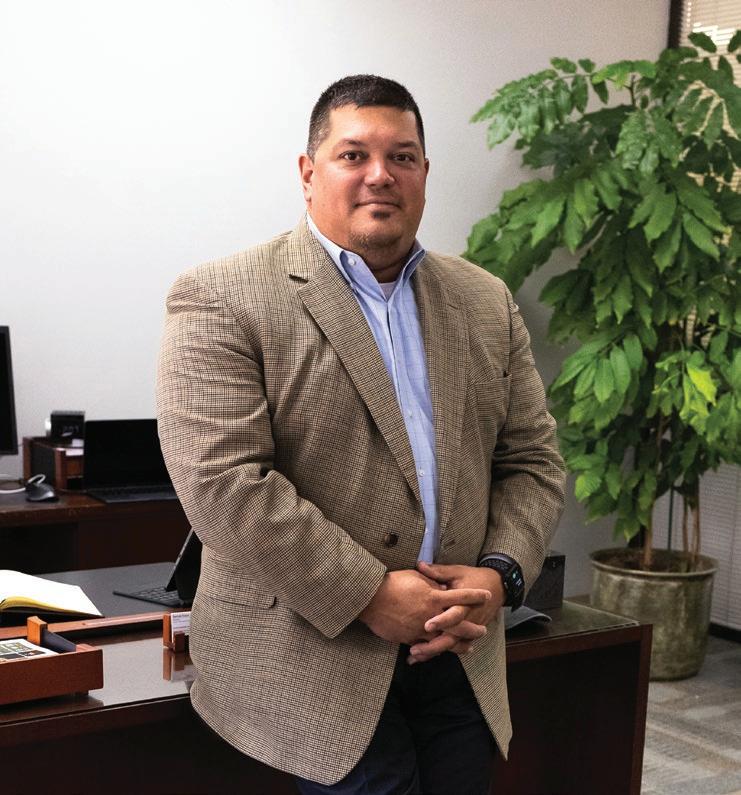
truck and big discounts on rental cars and hotels, etc., with a membership. Hey, 20 percent off hotel costs for the entire travel baseball team this summer would be huge!
All these benefits and more, including our serviceoriented insurance, are available to Arkansans with just a $40 Farm Bureau membership. Kaylee and her brother, Brett, are both members as are her parents. Membership allows them to purchase Arkansas Farm Bureau Insurance for themselves, their farm and equipment.
We’ve launched a redesign of Front Porch with this edition. It arrives quarterly in your mailbox because you’re a Farm Bureau member. Are others in your family members? How about your neighbors? Please tell them about the benefits of Farm Bureau membership. We’d love to serve them.
Maybe you can help us to help someone like Kaylee with college or assist new parents with affordable car seats. Does your neighbor need better insurance with quality service or could the farmer down the road afford new equipment if it were discounted?
Arkansas Farm Bureau is a grassroots organization representing more than 190,000 member families with offices in the state’s 75 counties, and we’re on mission to provide products and services that improve the quality of life for members like Kaylee. I find great satisfaction in stories like hers and hope you’ll tell others about the benefits of Farm Bureau membership.

A CUSTOM METAL SHOP IN NORTH ARKANSAS WINS THE INAUGURAL ARKANSAS AG INNOVATION CHALLENGE

and Fabrication LLC in Gassville is a mildly surreal experience. The custom metal shop is a veritable idea factory with current projects and newly designed implements in various stages of development and production. Technology abounds, the latest being a CNC plasma-cutting table, but the staff is decidedly old-school in its approach and quality of work.
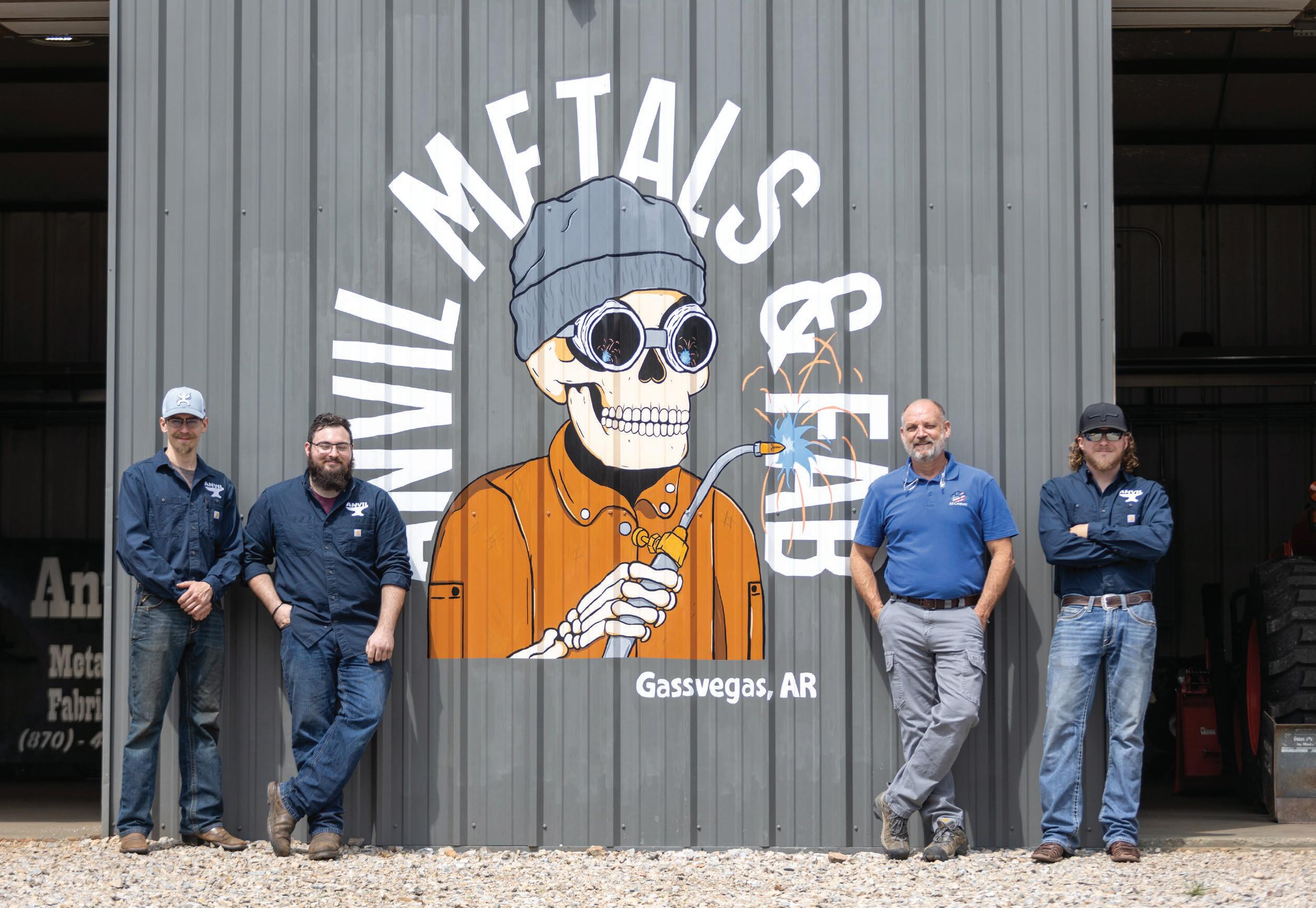
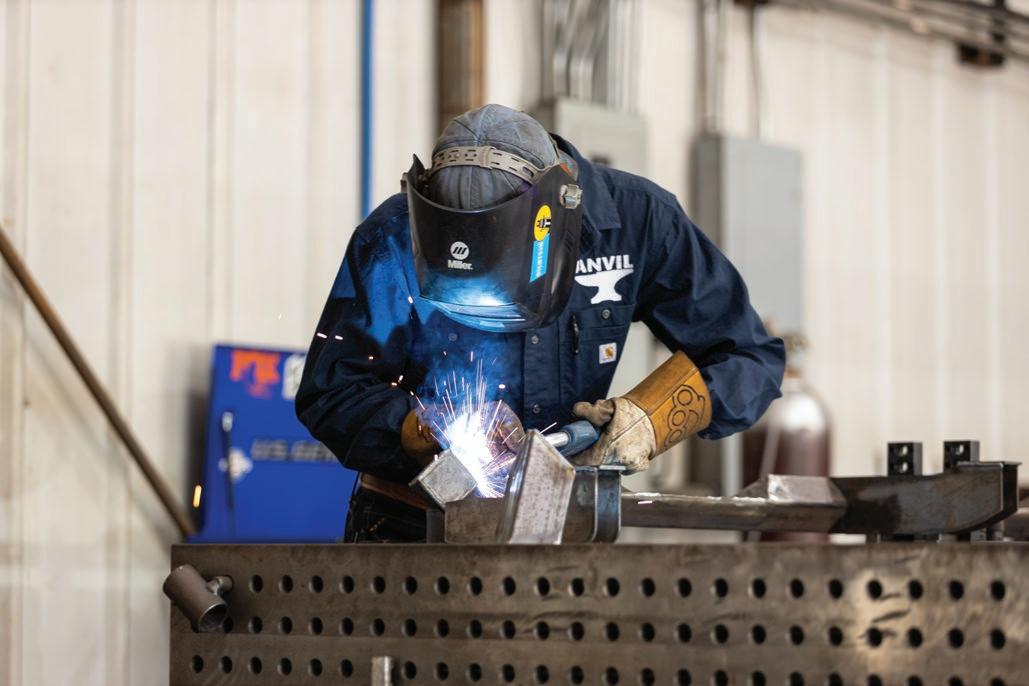
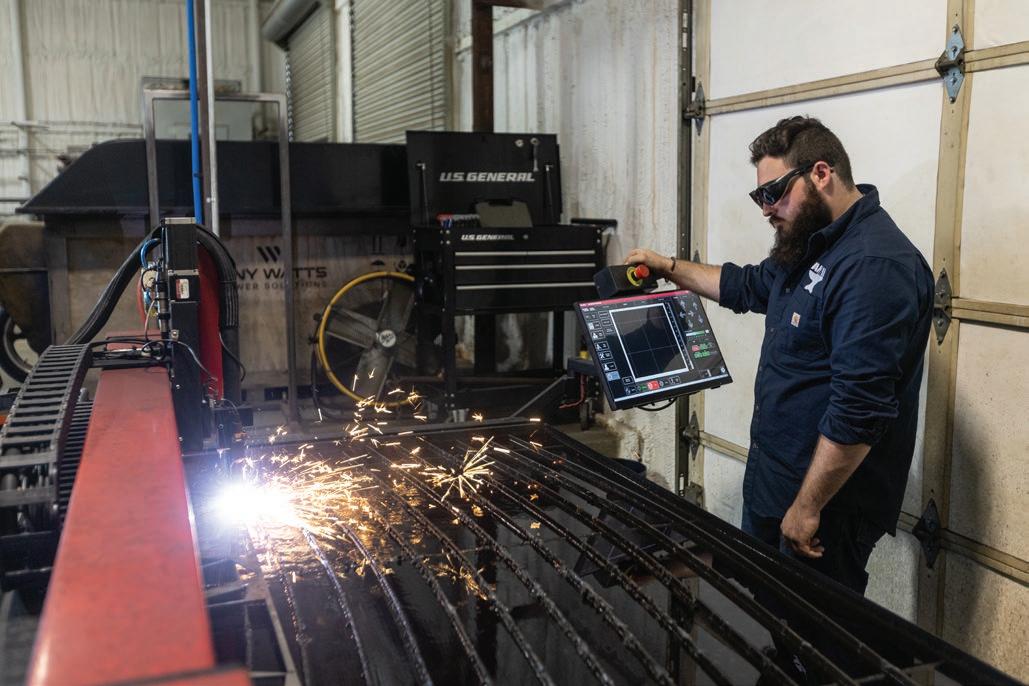
Anvil Metals handles anything from spot-job welding for farms and businesses to custom metal signage and fabricated pieces for residential and commercial construction. The company has also invented several patented implements that it markets through retailers.
Key to it all are co-founders Cody Marquis and Damion Schilling, longtime employee Trey Wilkerson and assorted interns recruited from the trio’s alma mater, Mountain Home High School. No one on the production floor is yet 25 years old.
The staff’s relative youth has, at times, overshadowed its technical chops and an innovative spirit that reaches well past their years – but likely not for much longer. In addition to creating a respected business, Anvil Metal’s brain trust already has three patented inventions on the market and recently won the inaugural Arkansas Ag Innovation Challenge, sponsored by Arkansas Farm Bureau and the Farm Credit Associations of Arkansas. In December, the statewide business competition showcased startups developing innovative solutions to address challenges facing farmers, ranchers and rural communities.
All that, plus bringing home the People’s Choice Award from the Farm Bureau’s competition, is firmly positioning Anvil Metals as a leader in its industry and a recognized name in the marketplace.
“[The business] is just something that is evolving, every day,” said Dr. Rob Conner, the third founding partner of the company. “Man, one thing about young people is they don’t have any fear. They’re not afraid of skinning their knees, so to speak. They are very willing to try something if you encourage them to. We try to keep it fun.”
ANVIL METALS grew out of Conner’s desire to make a difference in his hometown. A graduate of Mountain Home High School who’s practiced veterinary medicine in the community for decades, he’s always had a heart for volunteering and investing in local youth. He met Marquis and Schilling when the two were in high school.
“I met them just as kind of a mentor, going in there and volunteering in the industrial arts program,” Conner said. “We were doing some projects on powder coating and welding and things like that at our practice, and Cody and Damion became my maintenance guys at the vet clinic and a couple of other businesses we have.”
Conner knew he had something special in his young handymen when he started talking about wanting to expand his veterinary clinic. Marquis, Schilling and Wilkerson took the challenge to heart, creating a two-story building out of shipping containers welded together with walls cut out to create rooms and accommodate necessary wiring, plumbing and doors. When completed, the structure and its young creators were the talk of the town.
“It was almost like daring someone to paint the ‘Mona Lisa.’ ‘Well, here’s your paint. Here’s your canvas. Impress me’,” Conner said. “They not only impressed me, but school administration came by to tour the facility. It basically showcases the sum total of all the things they’d learned in
their industrial arts programs.”
The young metalworkers’ next achievement showed a flair for invention, creating prototypes that would become the company’s patented products. One, a chain binder, secured flatbed loads easier, more quickly and without the potential pinched fingers of existing implements.
Another was an improvement to skid-steer attachments, combining a bucket with foldable tines that switched from scooping to forklifting without having to change the front attachment. A third invention is an implement used for cleaning out culverts.
“Part of the creative process was, well, if we used a tool and it was difficult to use, could we not design something better?” Conner said. “I love watching them work, fixing problems, designing creative, clever solutions.”
Conner is quick to deflect much of the credit for the business’ success – “To this day, I can barely weld,” he said with a laugh – but his proteges see it differently.
“One big thing that ‘Doc’ showed me was the importance of giving back to the community and into the school, in particular,” Wilkerson said. “I never really thought about teaching, but we’ve been planning to host field trips with the schools to show students things about the trades in general. I want to pass on my trade and what I know to others.”
Marquis added, “He’s shown us everything about the business side of things. As far as welding and talking with the public, not that big of a deal.
Understanding how a business runs and the hidden costs behind all of that as well as trying to get accurate bids on jobs is very challenging.”
“THE IDEA I HAD WAS THAT THIS WOULD HELP AGRICULTURE, THE NO. 1 INDUSTRY IN ARKANSAS. IN THE PROCESS, YOU NEVER KNOW, WE COULD FIND THE NEXT BIG COMPANY WOULD COME FROM A SMALL TOWN IN ARKANSAS.” — PHILIP POWELL
Conner’s mentorship also infused confidence and ambition in the team, Schilling said, adding that as he’s had the chance to return the favor to students, he frequently echoes what Conner taught him.
“He told us you can do anything you set your mind to; you’ve just got to dedicate your time and energy to it,” Schilling said. “Honestly, it’s been pretty eye-opening because it doesn’t seem like too long ago I was in high school. Having young adults look up to me as a mentor, someone who knows what they’re talking about, is pretty crazy.”
These lessons have coalesced into inviolate company values, including that no job is too small to be done exceptionally well.
When Melissa Cascio and her husband Jeff moved to Arkansas from Louisiana to retire, they built their dream home in Flippin from the ground up. The project came down to one final detail: custom iron railings, both inside and out, and she said Anvil handled the work with top-notch professionalism.
“Cody was honest, straightforward and I can’t tell you how many times he came out here and measured and remeasured
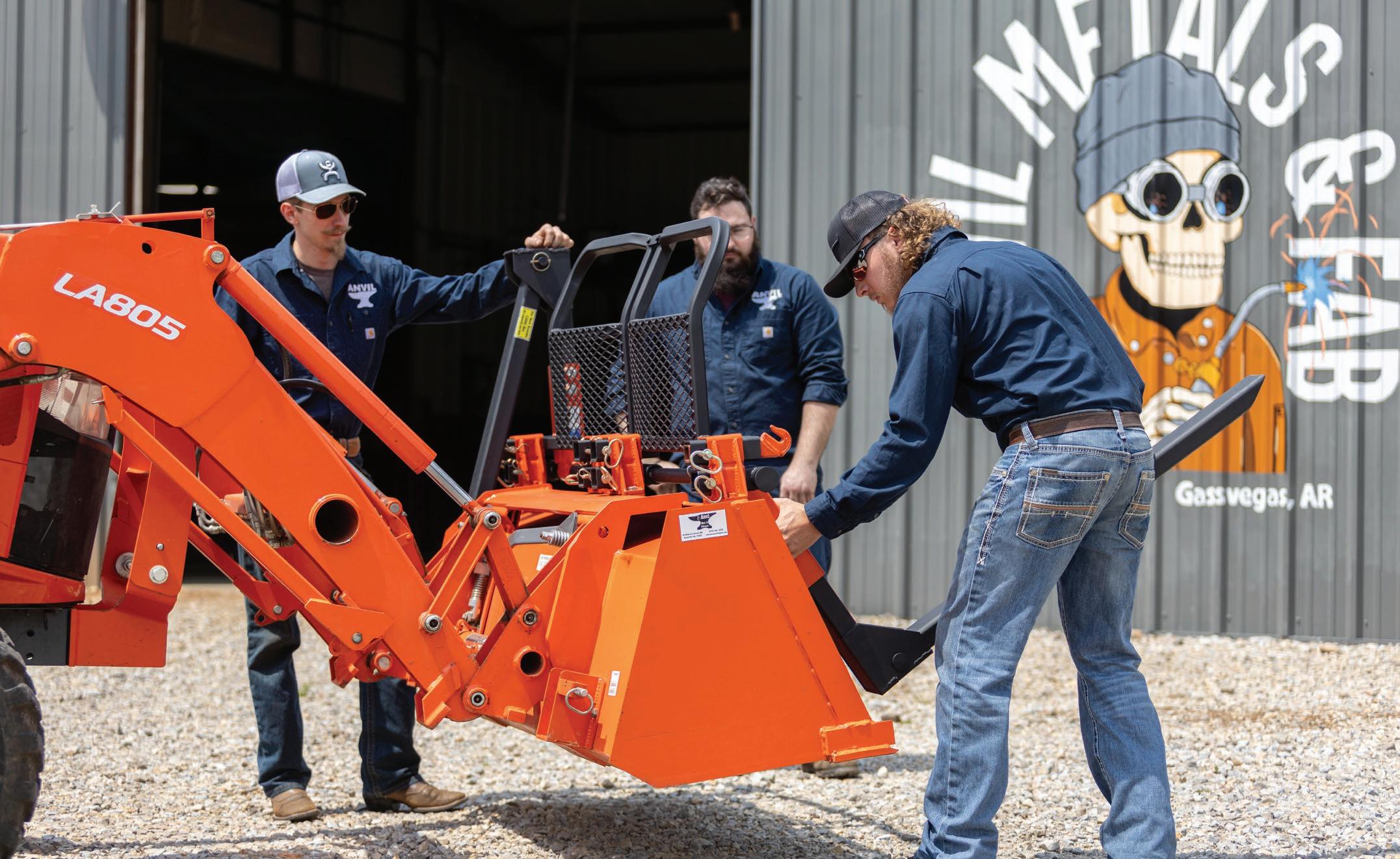
to put a piece in,” she said. “If he wasn’t happy with it, he left with it. I remember one piece. We were happy with it, but he wasn’t; so he reconstructed it until he was satisfied with it.
“For a young man like that to do the level of work that he did – he was the most impressive person in any line of work that we’ve met since we’ve been up here in Arkansas.”
CONNER SAID from the moment he heard about the Arkansas Ag Innovation Challenge, there was no doubt the company would enter.
“There was an article on our local radio station’s website,” he said. “I read ‘agriculture, innovation, new business,’ and I thought, ‘check, check and check.’ Everything they talked about in the article was something I felt like we’d accomplished already. I thought we’d be perfect for it.”
The state-level business competition is the brainchild of Philip Powell, former director of local affairs and rural development with Arkansas Farm Bureau. Powell became aware of the national program sponsored by American
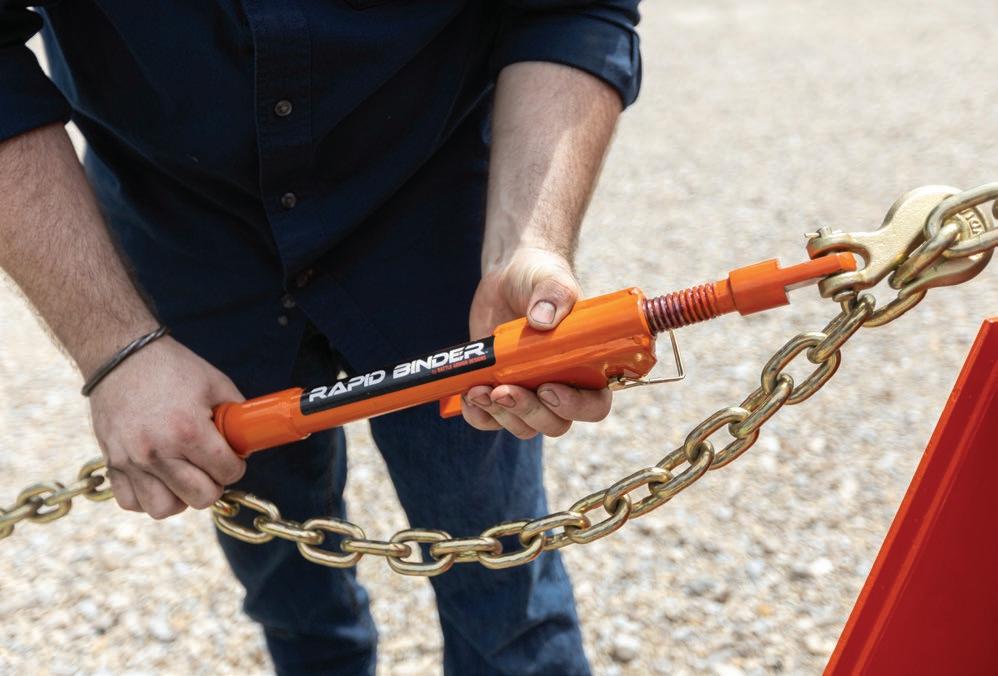
Farm Bureau and, noting a state competition being held in his native Alabama, resolved to bring a similar event to the Natural State.
“The idea I had was that this would help agriculture, the No. 1 industry in Arkansas,” he said. “Some of these companies have such unique ideas, and we find so many issues in agriculture where some of these companies could present solutions. I thought in the process, you never know, we could find the next big company would come from a small town in Arkansas.”
Mark Lambert, current director of state affairs for Arkansas Farm Bureau, managed the inaugural competition held during
the annual state convention. He said five finalists emerged from an applicant pool of about 12 companies, each vying for their share of $15,000 in prize money. The companies were judged on how they applied innovation to solve a problem faced by some segment of agriculture.
“I think what this competition does is it promotes new agribusinesses and the innovation that helps keep this industry moving forward,” Lambert said. “It also helps them get a little bit more funding to take their company to the next level.”
Powell, who served as a judge in the competition, said he was impressed by the quality of the entrants, especially being the first year for the event. He said the 2024 challenge could lay the groundwork for even bigger things.
“I hope it will become one of the premier ag business competitions, not only in the state, but in the country,” he said. “I hope that five or 10 years from now we’ll see a lot of success stories that will help solve some of the problems we have in agriculture today, or future problems we don’t even know about yet.”
WITH ITS WIN, the Anvil Metals team is eligible to apply to the national competition. But for now, it’s back to business in Gassville. The company’s business plan runs on a diet of new product ideas, testing and tweaking prototypes, and serving local clients on a variety of projects. The reputation of the firm has spread quickly among the farms and small towns that dot the north central Arkansas landscape, so much so that no one bats an eye anymore at turning projects of any size or complexity over to a group of twentysomethings.
Dr. Ray Stahl is typical of Anvil’s customers, a Mountain Home resident with occasional small welding needs. Recently, he’s branched out into inventions and has utilized the team’s design and fabrication chops to help get it off the page and into reality.
“You can go to them with an idea, and they can certainly make it happen,” he said. “The young men that are working there are all extremely sharp, with experience beyond their years as far as welding skills. But they also have an amazing amount of engineering boots on the ground, I guess you might say. They can take an idea and make it come to fruition.”
Stahl, whose day job is a surgeon, also said he appreciates how the venture kept homegrown talent in town, something he hopes to see more of in the years to come.
“I think providing opportunities for young people to stay here and prosper is tremendous,” he said. “When someone like Dr. Conner invests his time and his money to making these things happen, it’s a good thing and so far, it’s working out very well.”
Conner said the future of his business, as well as the state’s small metal fab industry, is bright, so long as new entrepreneurs and craftsmen are supported and nurtured.
“When I think of Arkansas, I think of it as the land of opportunity, as we used to be called. We can fix any problem if you give us a chance,” he said. “Right now, being new and young, we’ve been aggressive as far as doing everything
Any startup company interested in the 2024 competition can enter from Aug. 1 through Oct. 4 by filling out an application by scanning the QR code above.
Applications must represent a for-profit business and include a business plan, business pitch, product images and other assets for review. Judges will review all applications and select five semifinalists to present at the Arkansas Farm Bureau annual convention on Nov. 5. Cash prizes totaling $15,000 will be awarded to the top two businesses, with the winner receiving $7,500 and the runner-up earning $5,000. There will also be a People’s Choice award winner that will be awarded $2,500.
from fixing someone’s trash truck or boat trailer to custom designing fancy signs for businesses.
“Our goal someday would be to be a creative think tank to solve problems with local industry. We have a small yard full of prototypes that are getting tested and used. Not every pitch is a strike, but we’re working hard every day to continue to pay the bills and grow and improve.”
by DWAIN HEBDA
Brittany Scott knows an opportunity when she sees one. Recognizing a gap in global protein production resources, the native Texan launched SMART Reproduction with an eye on the world.
“We source elite American sheep and goat genetics,” said Scott, the company’s CEO. “We collect semen and embryos, and then we work with a range of individual producers, NGOs and individual international governments to get the American genetics to them.
“These international markets are huge for cattle, poultry, swine and horses, but no one had developed a sheep and goat international market. We are creating a new, novel market that has not been available to producers in the past.”
Scott’s vision for the Jonesboro-based company has unfolded rapidly. Incorporated in 2021 as Semen and Embryo Advanced Reproductive Technologies LLC, its clientele has already ballooned to 33 countries on six continents. The firm is the first U.S. Department of Agriculture-inspected and approved multi-country, European Union and UK center certified in the collection, cryopreservation, export and import of small ruminant semen and embryos.
The company was runner-up in the inaugural Arkansas Ag Innovation Challenge, sponsored by Arkansas Farm Bureau and the Farm Credit Associations of Arkansas. Anvil Metals and Fabrication of Gassville was the winner, and three other companies, HM Mobile Welding and Fabrication of Vilonia, CelluDot of Fayetteville and Cureate of Fayetteville, were finalists.
At SMART Reproduction, Scott said helping to improve food production around the world is one of the most satisfying aspects of the booming business.
“We’re helping countries achieve food security by sustainably and efficiently producing meat and milk protein,” she said. “We have extremely productive genetics in the U.S. and that’s helping producers in the countries we work with produce more pounds of meat and more

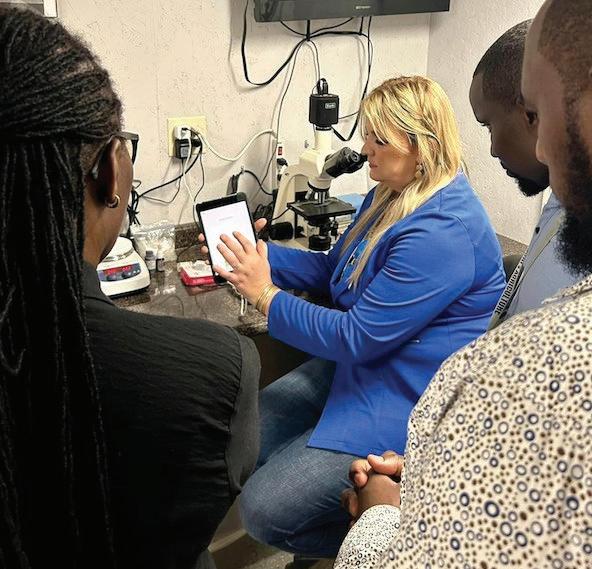
“WE HAVE EXTREMELY PRODUCTIVE GENETICS IN THE U.S. AND THAT’S HELPING PRODUCERS IN THE COUNTRIES WE WORK WITH PRODUCE MORE POUNDS OF MEAT AND MORE POUNDS OF MILK FROM THEIR NATIVE ANIMALS. THAT’S PRETTY COOL.”
— BRITTANY SCOTT
pounds of milk from their native animals. That’s pretty cool.”
Scott said she enjoyed the competition, especially from a skills development aspect.
“I love doing any Farm Bureau event, as much for the experience and growth. The events really push you,” she said. “Something that I’m trying to work on personally is my public speaking, and this competition required me to get up and pitch, like giving a TED Talk. It was something new for me and a space I’m not completely comfortable in, so this was me trying to push myself out of the box to do it and get feedback so we can learn and grow.”
By ARFB STAFF
Agrowing number of county Farm Bureaus are recognizing and highlighting the work of local students involved in FFA and 4-H through an Ag Student of the Month program.
“The idea for the Ag Student of the Month came about when brainstorming on ways to highlight agriculture students at a county level,” said Hannah Walker, a board member for the Baxter County Farm Bureau, which was the first to roll out the monthly program. “Our insurance company – to celebrate the successes that happen in our local communities – has had a great program to recognize students for athletic accomplishments for several years.
“We felt by adding the Ag Student of the Month award we could bring some additional focus to the other parts of Farm Bureau,
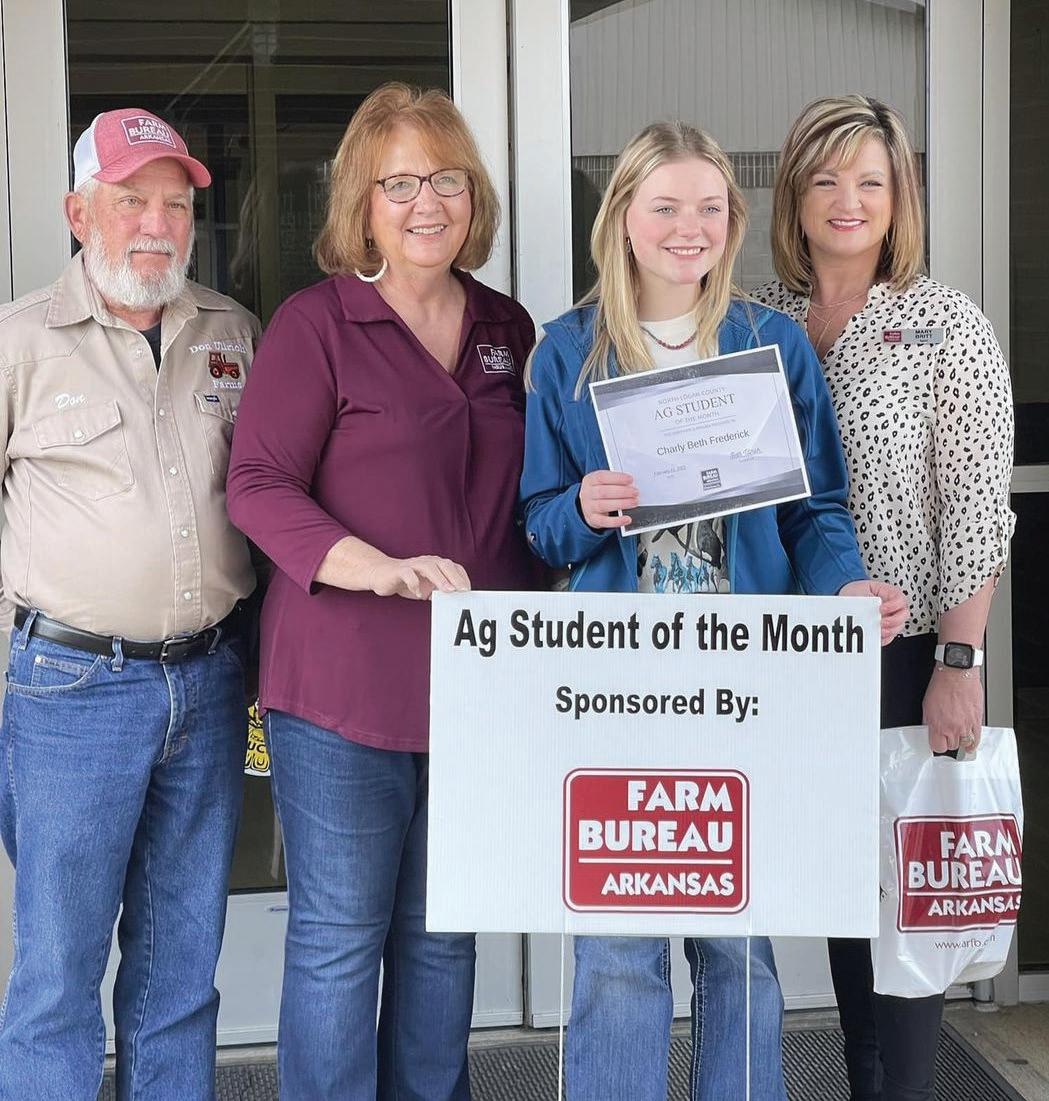
like the county board and our Young Farmer and Rancher and Women’s Leadership Committees. Through this recognition program, we have helped bring an added agriculture focus to Farm Bureau throughout our county.”
Hirsch Feed & Farm Supply of Mountain Home has stepped in as a co-sponsor for the county program.
“This award is a way of giving back to agriculture-minded students and support them in their ag-related activities,” Walker said. “You can see we are making changes to their ways of seeing Farm Bureau as an advocate for agriculture – and a good community partner – and not just a great insurance company.
“We are establishing face-to-face relationships with these students. I am having more conversations about Farm Bureau and what other opportunities it offers, like our scholarship
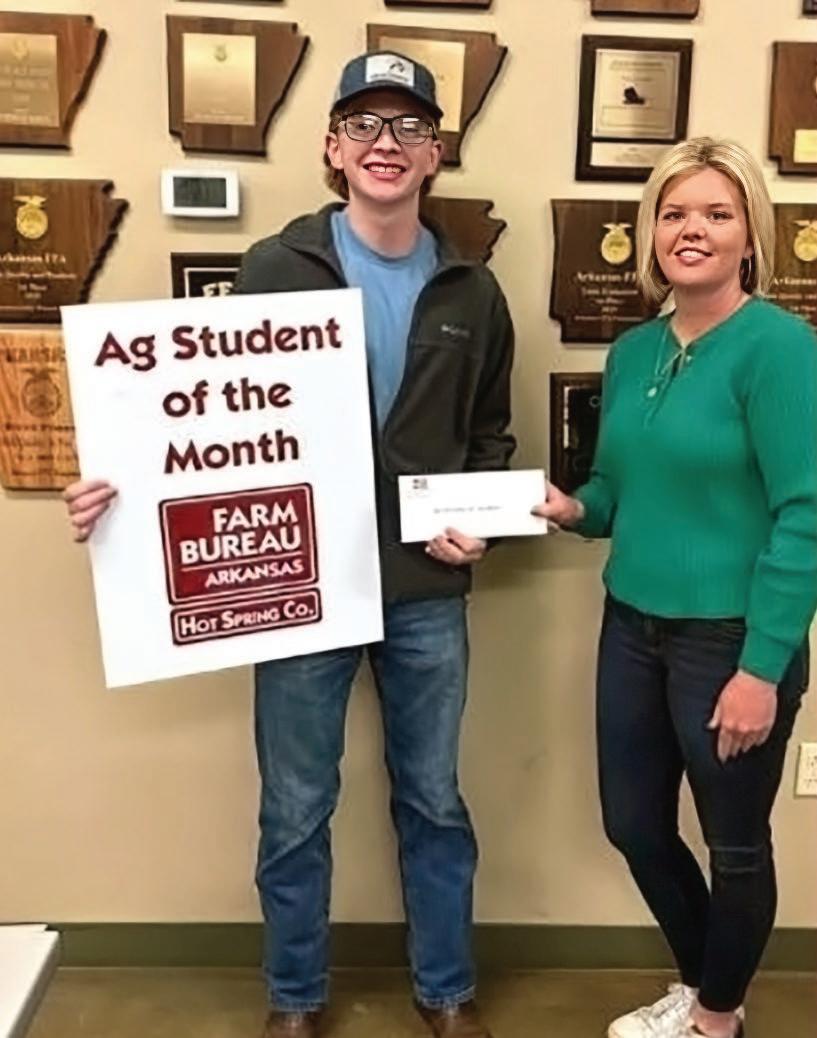

FFA and 4-H
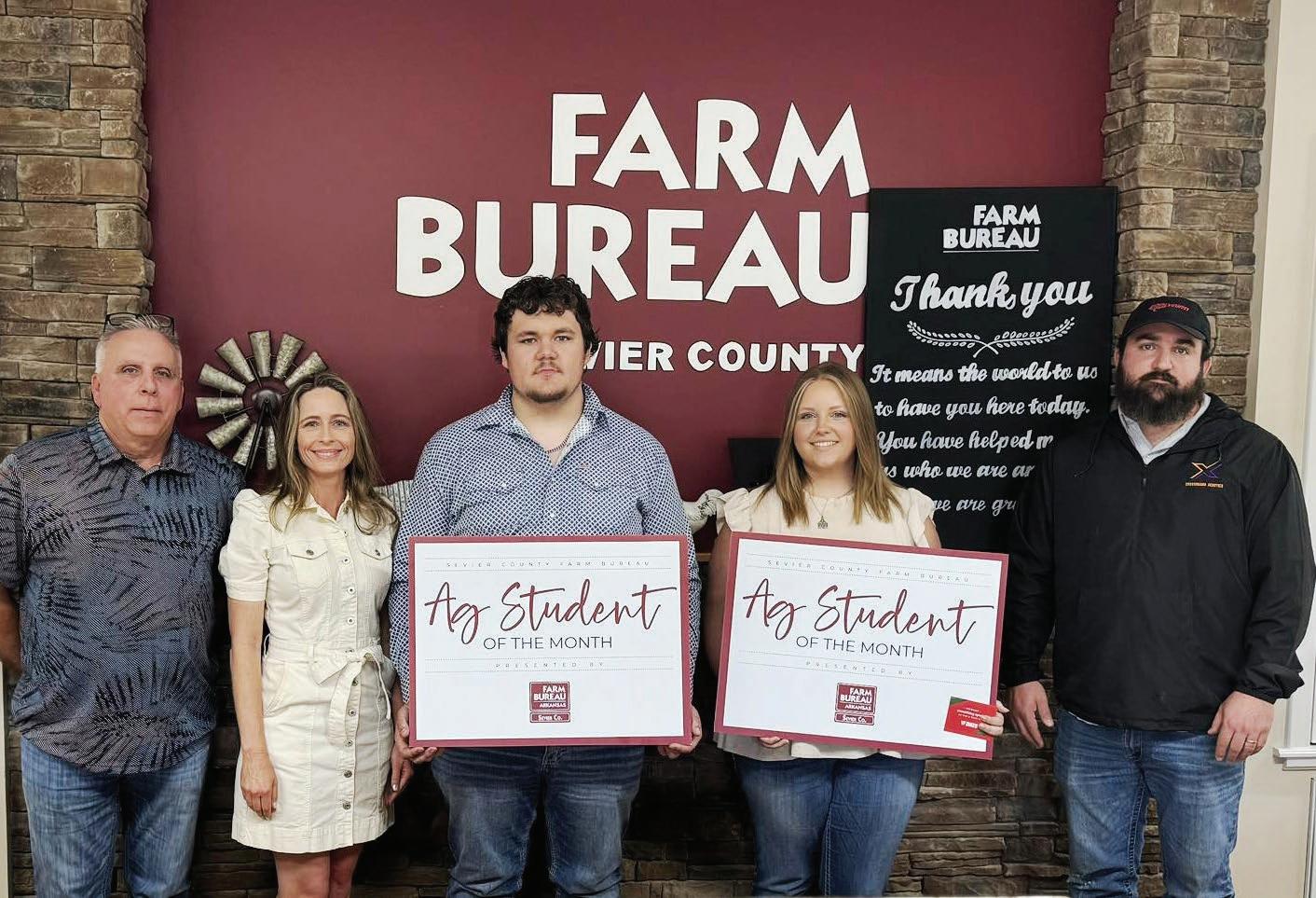

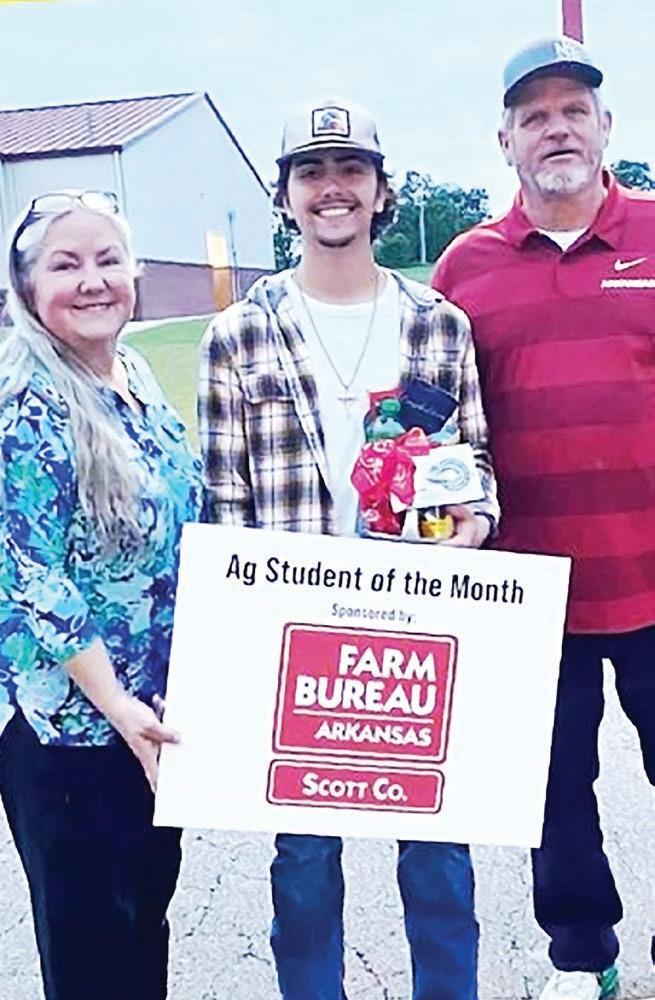
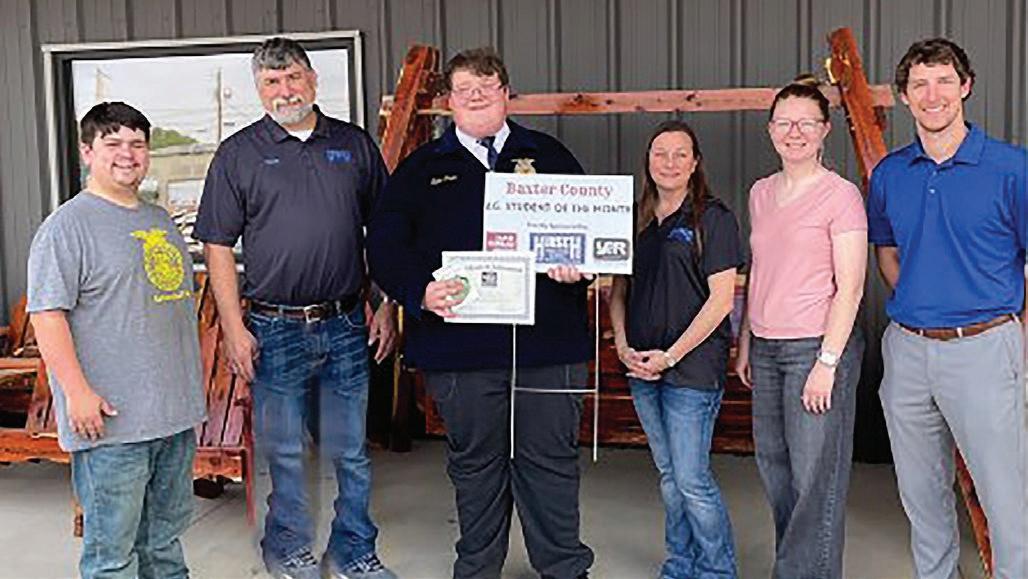

Clockwise, from top: Sevier County Farm Bureau recently named May Ag Students of the Month Olivia Cooley, a senior at De Queen High School, and Dawson Smart, a senior at Horatio High School; Travis Tobey, president of the Mansfield FFA Chapter, was named Ag Student of the Month by Scott County Farm Bureau; The February Johnson County Farm Bureau Ag Student of the Month was Grant Miller, a freshman at Lamar High School and an active Lamar FFA member; Blake Peter of Norfork High was recognized by Baxter County Farm Bureau as its April Ag Student of the Month; Kyla McElroy of Foreman was Little River County Farm Bureau’s Ag Student of the Month for December 2023.
programs and the leadership development programs. This award allows us each month to change the mindset of a student and their family members about how they view the Farm Bureau organization.”
Currently, more than 30 county Farm Bureaus in Arkansas organize similar Ag Student of the Month recognition programs, with more inquiring about the possibility of starting one.
“It is super exciting to hear that so many other county Farm Bureaus are involved with an Ag Student of the Month award,” Walker said. “I had no idea there were that many. I am super humbled that Baxter County has had a positive impact in creating a program like this one throughout nearly half of Arkansas.
“I would encourage any county Farm Bureau considering a similar program to reach out to your local Cooperative Extension offices and agriculture teachers and build relationships with them.
“Also, reach out to county board members, community members, feed stores, banks, etc., and see what kind of sponsorships are out there – physical items or monetary donations – and plan your program around that. Even if you can’t get sponsorships, a certificate and a ‘job well done’ to a student goes further than you realize.
“The agriculture industry is changing daily, and we must remember our mission and purpose for this award and represent Farm Bureau as it should be represented.”
April’s Jefferson County Farm Bureau Ag Student of the Month was Brettlynn Blankenship of White Hall FFA.
Brettlynn is highly dedicated to the FFA chapter, creating social media content and designing promotional materials. She also serves as chapter reporter in her first year as an FFA officer.
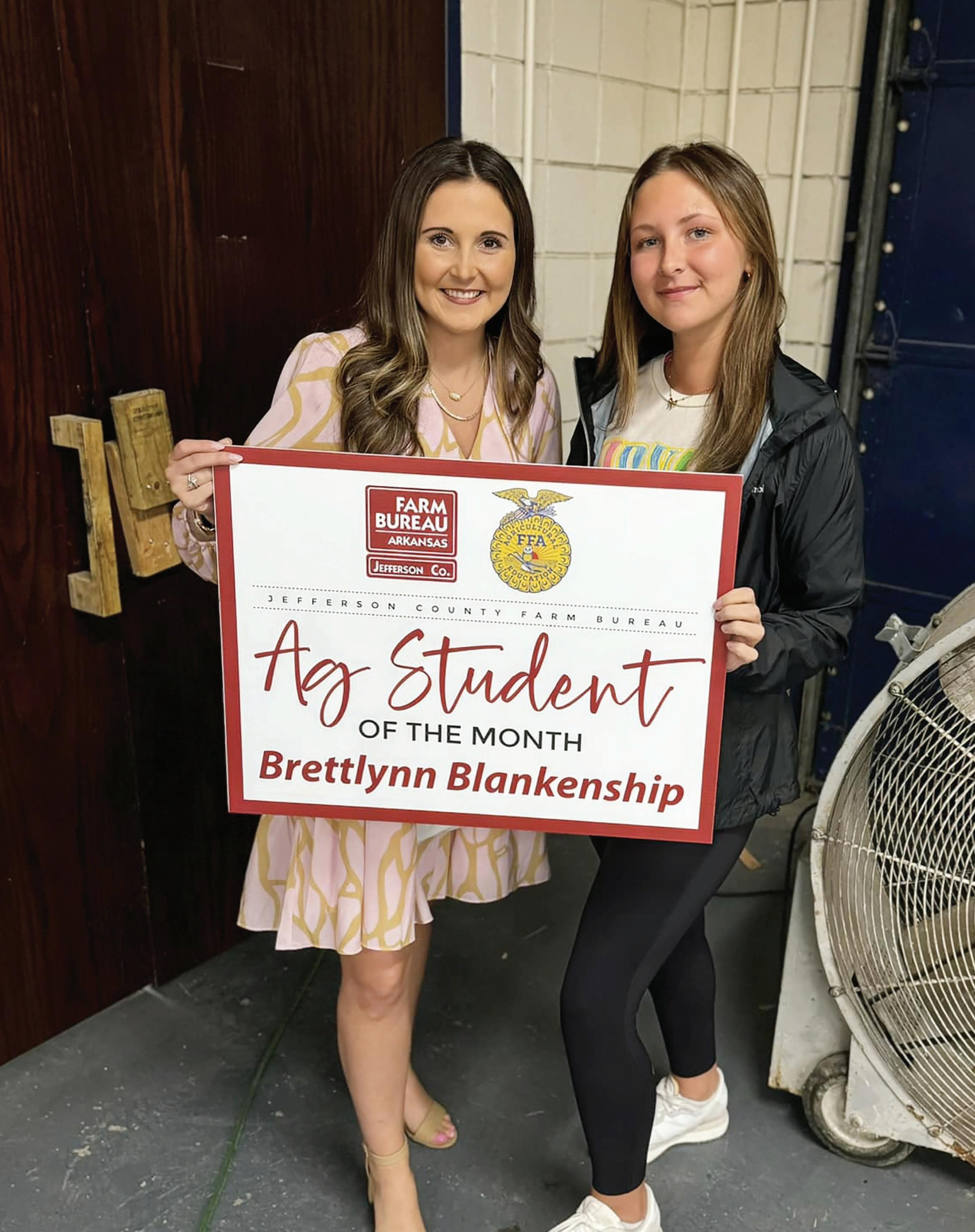
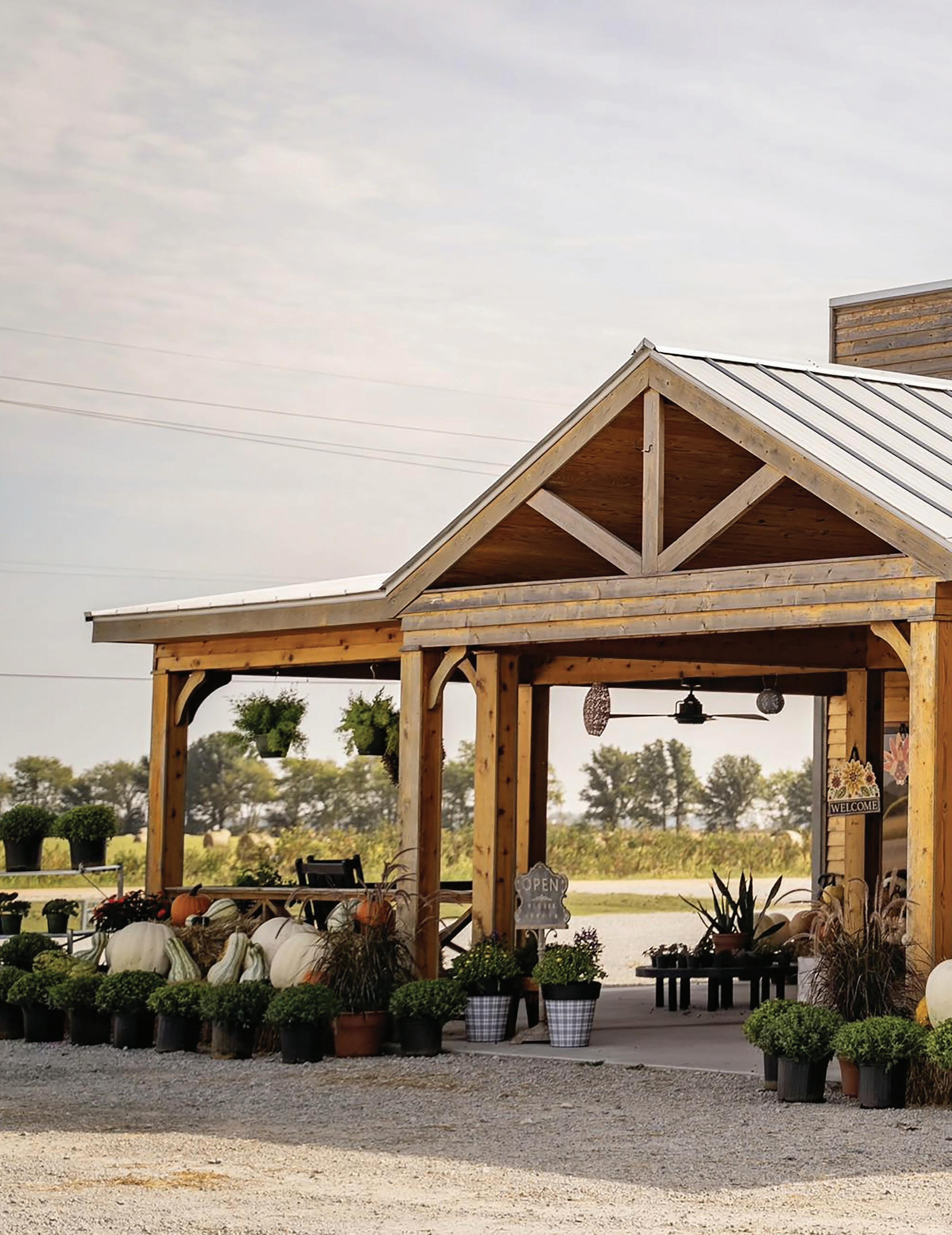
As Arkansas’s work-study college, Williams Baptist University is showing how agriculture can make education possible for all
by SHAYLEE WALLACE BARBER
provided by WILLIAMS BAPTIST UNIVERSITY
Nestled in Lawrence County, Williams Baptist University (WBU) was founded in 1941 with a vision to “create a school that equipped graduates to be transformative leaders, men and women who exemplified ‘salt and light’ leaders for challenging times and situations.” More than 80 years later, WBU continues to strive toward creating those leaders.
But what makes it unique is the status as a work college. Through generous donations and community partnerships, WBU is making college affordable and available to students of all financial backgrounds. And while they may not currently offer agriculture degrees, the students have a working farm that allows them the opportunity to gain hands-on agriculture experience while pursuing their degrees.
Eagle Farms at WBU is a 300-acre farm where students can work to help pay for their tuition. The farm is considered a centerpiece of the Williams Works program, and it’s easy to see why. As a working fruit and vegetable farm, student staff on the farm help plant, cultivate and harvest crops yearround, as well as market the products they grow.
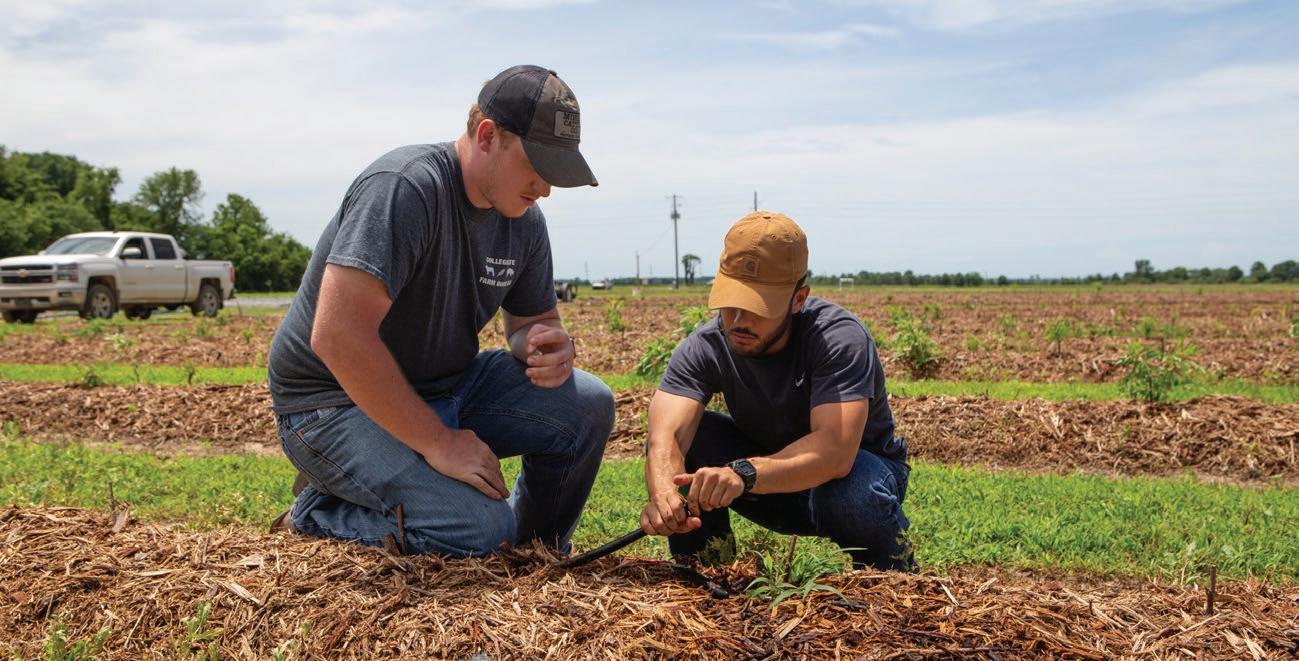
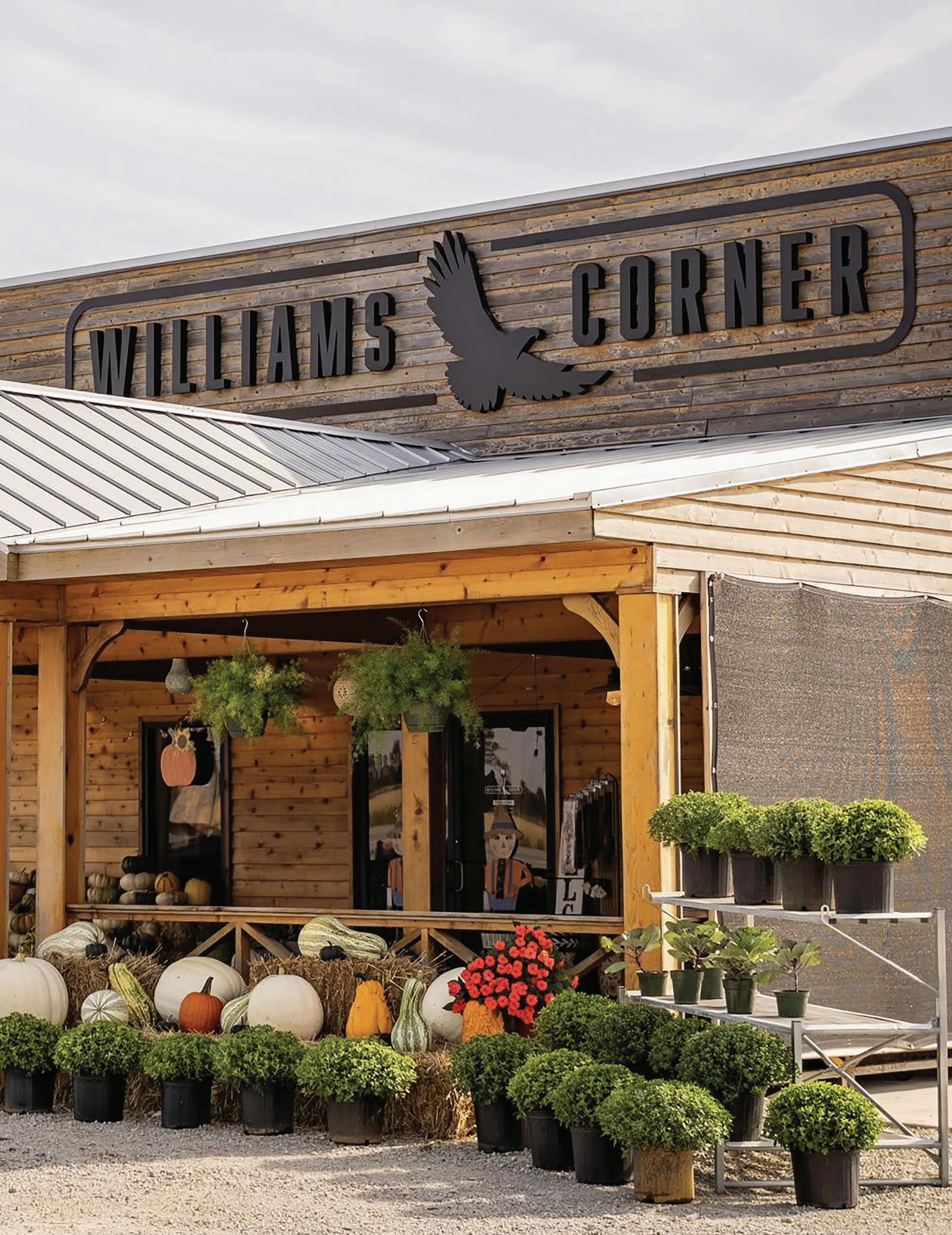
“I guess it’s safe to say the farm is maybe our flagship, but it might not be where we get the most of our money. It’s growing, though,” said Brad Flippo, farm manager of WBU. “I mean, we’re just now going into our fourth year with the farms, and they absorb a lot of student workers. And they’re out there, learning how to apply real-world practices and even some of their own majors, on the farm.”
Two of Eagle Farms’ specialties are seasonal, with its most popular items being spring strawberries and fall pumpkins. Regenerative farming is also a large part of what they do. In the past four years, they have focused on improving the acreage to grow the best products possible.
“Of course, not all 300 acres are currently in production, but we’ve focused on some cover crops, weed control and ground improvement, and we’re seeing results,” said Flippo. “Every year we’re able to do more, and it’s exciting.”
Eagle Farms’ operation includes vegetable, fruit and even landscaping production to sell at its store, the Williams Corner. A boutique-style store, Williams Corner focuses on bringing high-end home and personal products to the public alongside agriculture products. Not only does Williams Corner provide a place for visitors to shop with WBU students, the staff also visits community businesses in the fall to offer decorative services with pumpkins and other fall décor grown right on Eagle Farms.
In addition to its farms, WBU has now opened the fourth state-inspected meat processing facility in Arkansas. The school currently offers custom meat processing, with a goal to expand into raising its own hogs and cattle. WBU also aims to provide opportunities to the community through its processing facility.
“When we built the facility, we built a classroom in it. The idea is to offer a trade school-type certification in processing and butchering, and we hope this is something we can offer to the public, not just our students,” said Flippo.
While the school may not currently offer agriculture degrees or certifications, WBU still recognizes the importance of agriculture as a learning environment.
“We envision pipelining students to working in areas that match their studies. Think biology with a hospital, business majors working with a local business that’s a community partner,” said Luke Colley, WBU’s vice president for advancement and business development. “That being said, the benefits these students are getting from working the farm and working the store are huge. They’re building a work ethic that quite frankly some of them never had. That’s part of the big key.”
Many students who end up working at Eagle Farms have never been on a farm before, but they’re drawn by the opportunity to pay for their education. Flippo points to opportunity for every major to apply what they are
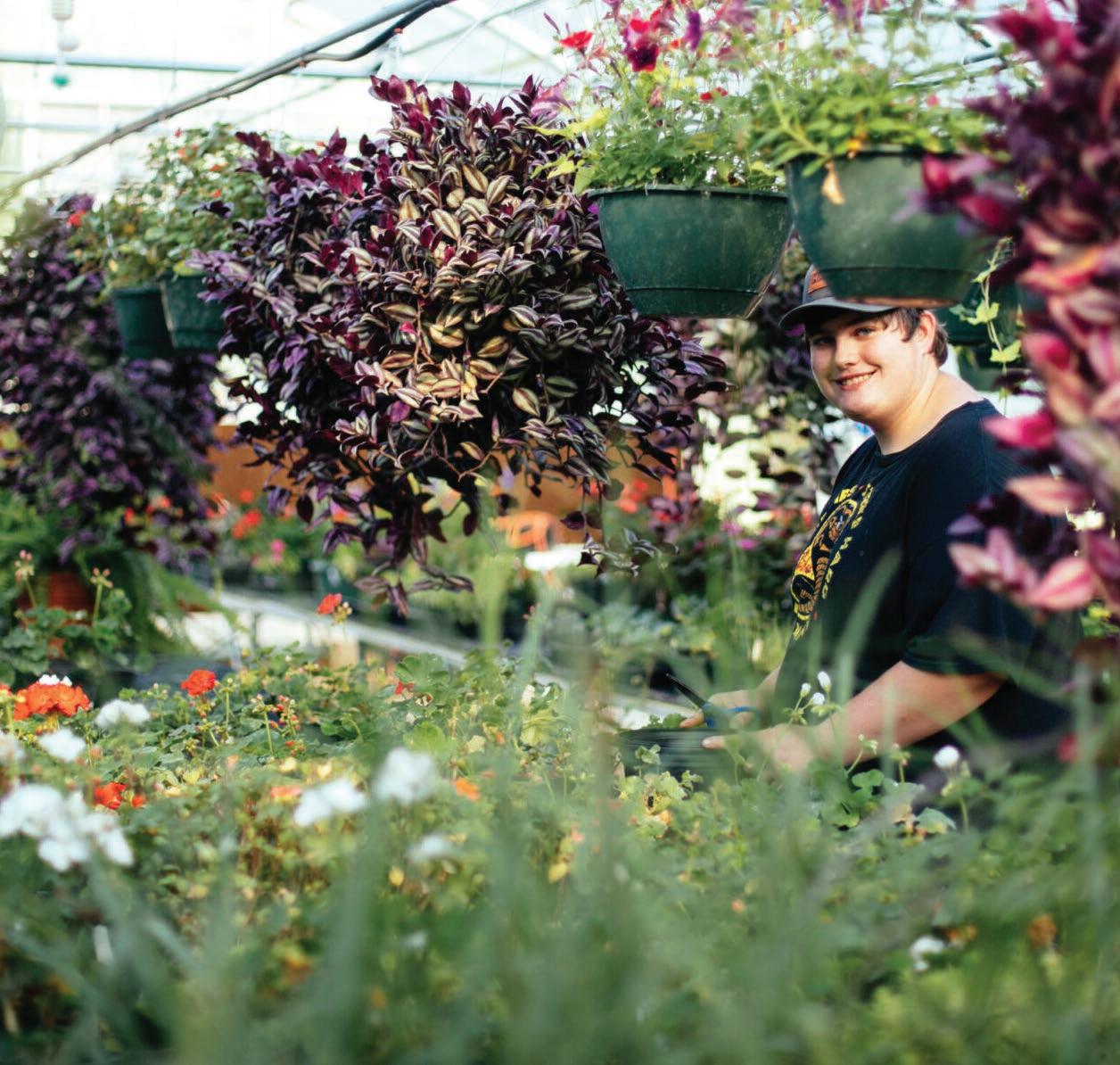
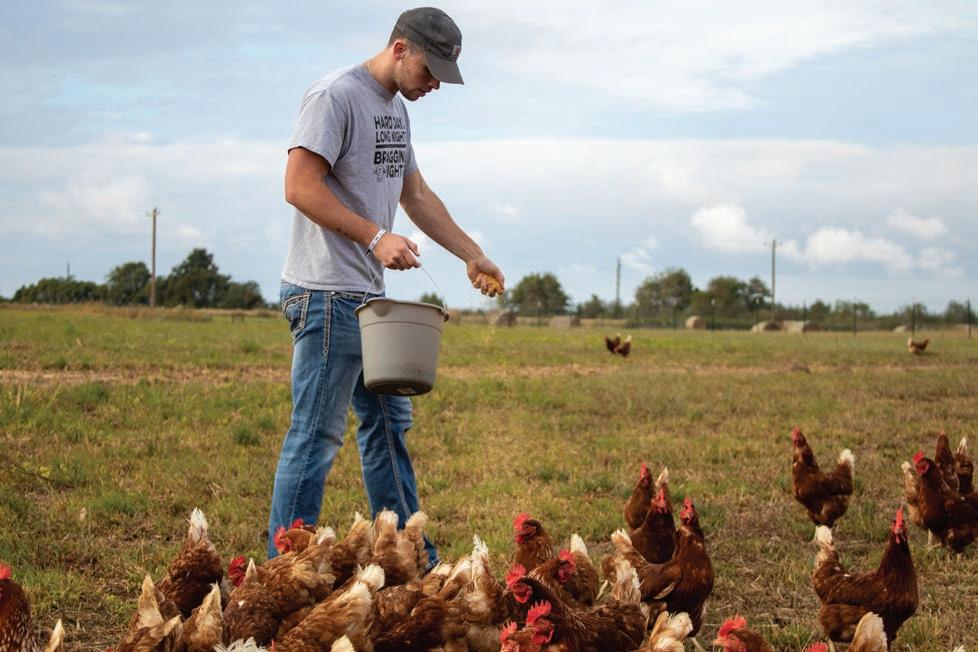
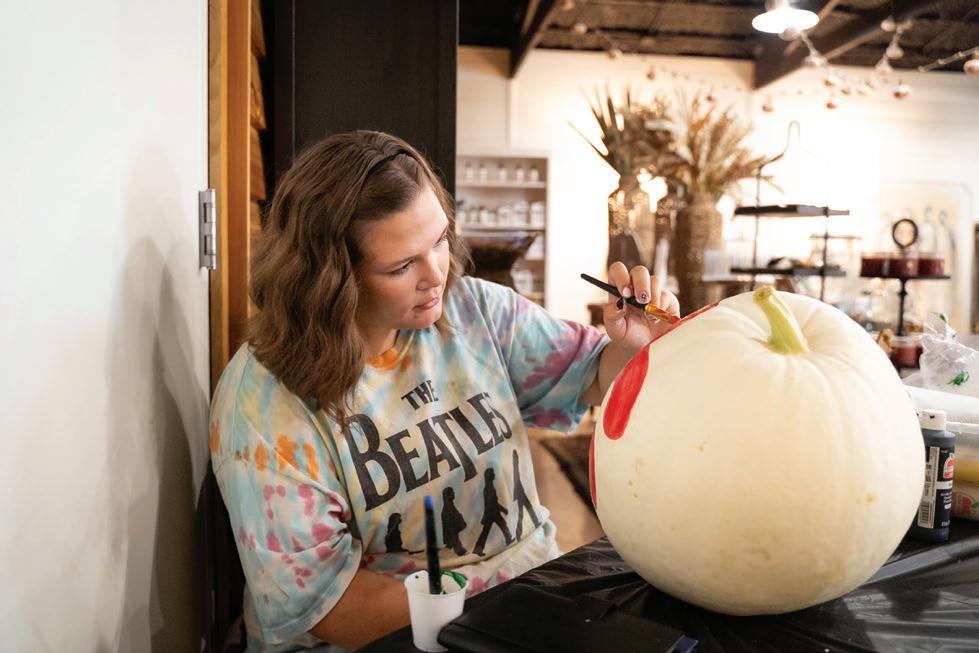
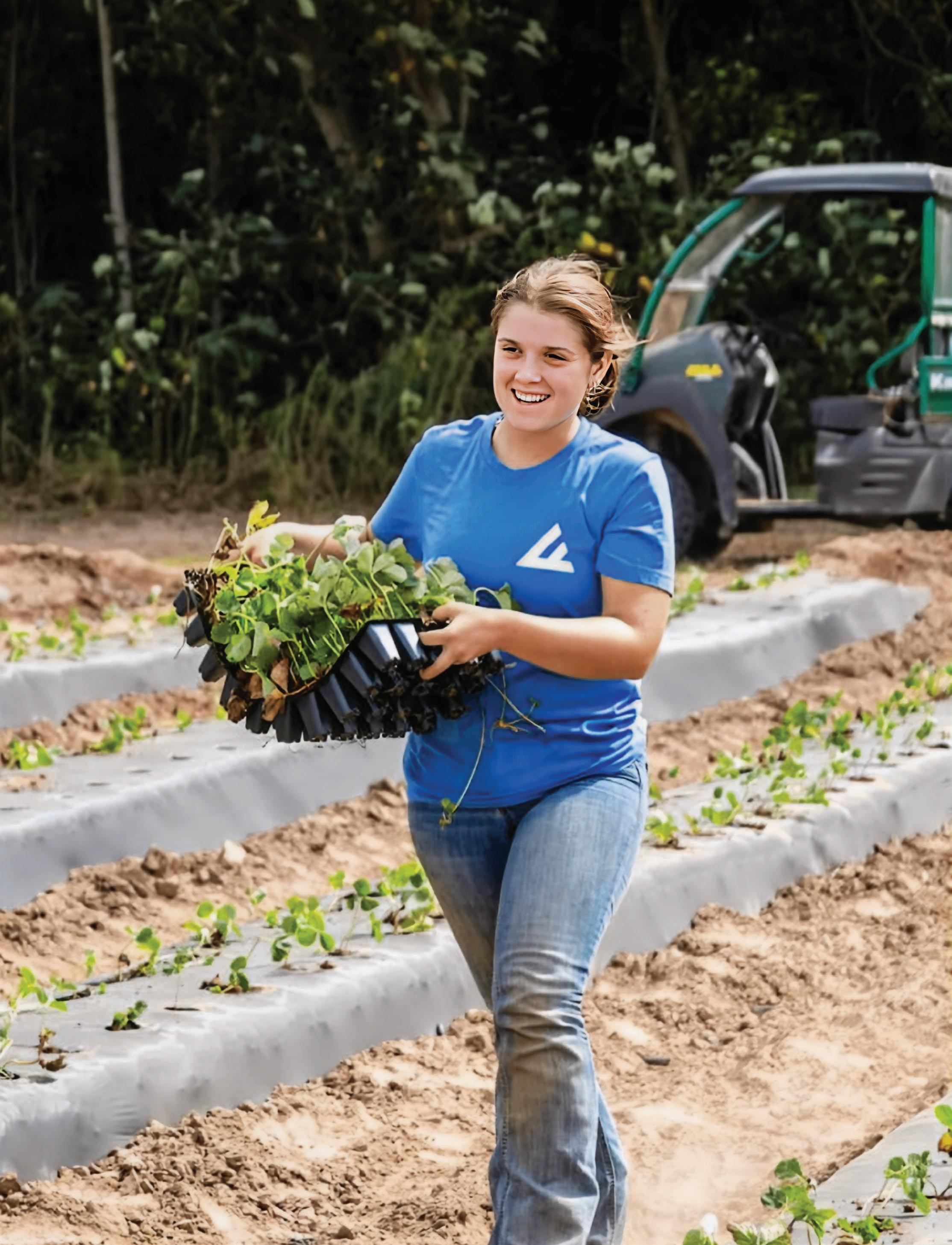
Students learn about irrigation and weed control – practices most don’t know having never worked in agriculture before. School leaders say problem solving is a skill taught at Eagle Farms.
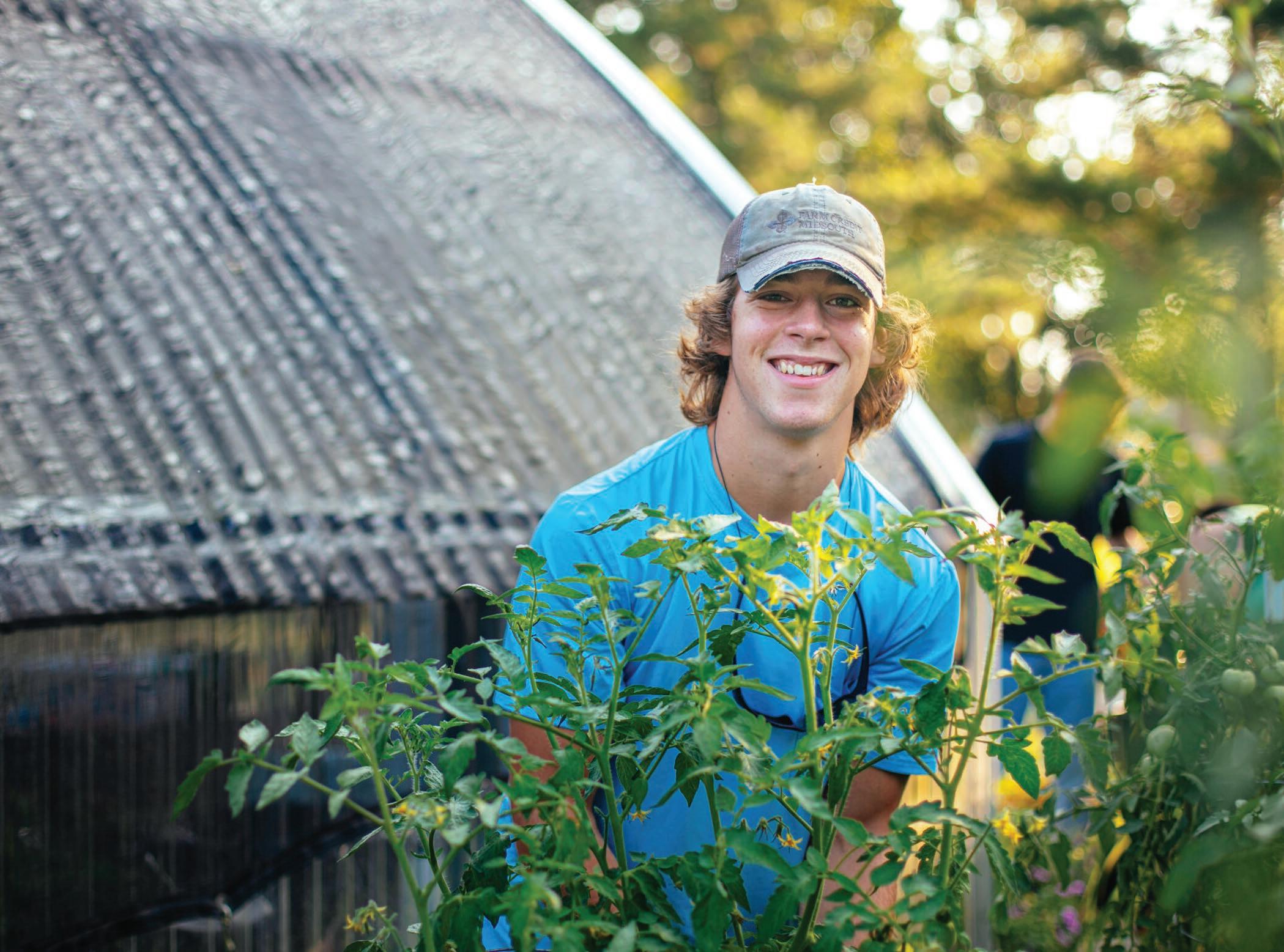
learning in the classroom directly to their work and every student to learn to apply their work ethic gained as well.
“Last fall, we had 5,000 strawberry plants that needed to be in the ground. I had three students scheduled and was thinking how will we get this done? When I got there, I had 12 students who came in before their classes, and they had 2,500 strawberries planted – and I didn’t ask them to come,” said Flippo. “That’s the kind of successes that translate to the real world. An employer can call and ask me about my students and how they work.”
While WBU offers a multitude of work program opportunities in many fields, school leaders say the agriculture opportunities continue to expand and offer students an experience they would not have otherwise. There is always more to learn and be done. Straw, hay, seasonal specialties, cover crops, fruits and vegetables, landscaping, egg layers, a meat processing plant – the opportunities for students to get hands-on agriculture production are vast.
“We want to teach the students here to be good stewards, of their jobs and the farm. That’s why we want people to understand what we have available here,” said Flippo. “We’re the only working college in the state; you don’t have to leave Arkansas to get this opportunity. We want people to understand the students are the ones out here putting in the work to grow and raise and sell these products.”
To learn more about Eagle Farms, visit williamsbu. edu/eagles-farms. For more information on Williams Corner scan the QR code and make time to visit them in Walnut Ridge this summer to shop for locally grown foods.
At the Arkansas Game and Fish Commission, our mission is to protect and enhance our state’s natural wonders. However, our state is vast, and only 10% of it is public land that we can manage. This is why our partnerships with landowners are key to conservation and wildlife management in Arkansas.
If you’re a landowner, we offer numerous programs to help you get the most out of your land’s unique resources, including ways to:
• Benefit migrating waterfowl
• Provide additional cover and food on your forestland
• Improve your streams
• Provide fishing opportunities for the public
• Control feral hogs and invasive plant species
With your help, we can keep The Natural State, natural. In addition, we want to reward you for your efforts with a payment of up to $10,000. Apply now at AGFC.com/Habitat.




Scan here or visit agfc.com/habitat to apply for the Conservation Incentive Program.
Hall of FAME
2024 inductees range from a seed company founder to a renowned cattle geneticist and an innovative cotton breeder
The Arkansas Agriculture Hall of Fame added six members to its ranks on March 1, bringing the number to 187 men and women who have been inducted for their service to agriculture. The Arkansas Agriculture Hall of Fame was originated by Paul Harvel, C.R. Sawrie and the Greater Little Rock Chamber of Commerce in 1987. The program seeks to build public awareness of agriculture, and to honor/recognize past and current leaders who have given selflessly to the farm industry, their communities and to economic development in the state.
Inductees to Class XXXVI were the late Dr. George Berger, who served as dean of the Arkansas State University College of Agriculture from 1971-1981 and founded the Eagle Seed business in his hometown of Weiner; Dr. Fred Bourland of Blytheville, a cotton breeder who created more than 100 improved cotton varieties adapted to Arkansas; Dr. Mark Cochran of Fayetteville, retired vice president of
the University of Arkansas System Division of Agriculture; the late Melvin Daniel of Hot Springs, a long-time ag education instructor and FFA adviser; Dr. Charles Looney of Hope, a nationally recognized cattle geneticist; and Gary Sitzer of Weiner, a fourth-generation rice and soybean farmer who has been highly involved in research and policy work in support of Arkansas agriculture.
“What an amazing group of farmers and those who help our farmers make agriculture Arkansas’s No. 1 business sector,” said Arkansas Agriculture Hall of Fame Chair Debbie Moreland of Roland. “Agriculture is such a critical cultural and economic part of Arkansas. It is what binds so much of our state together.
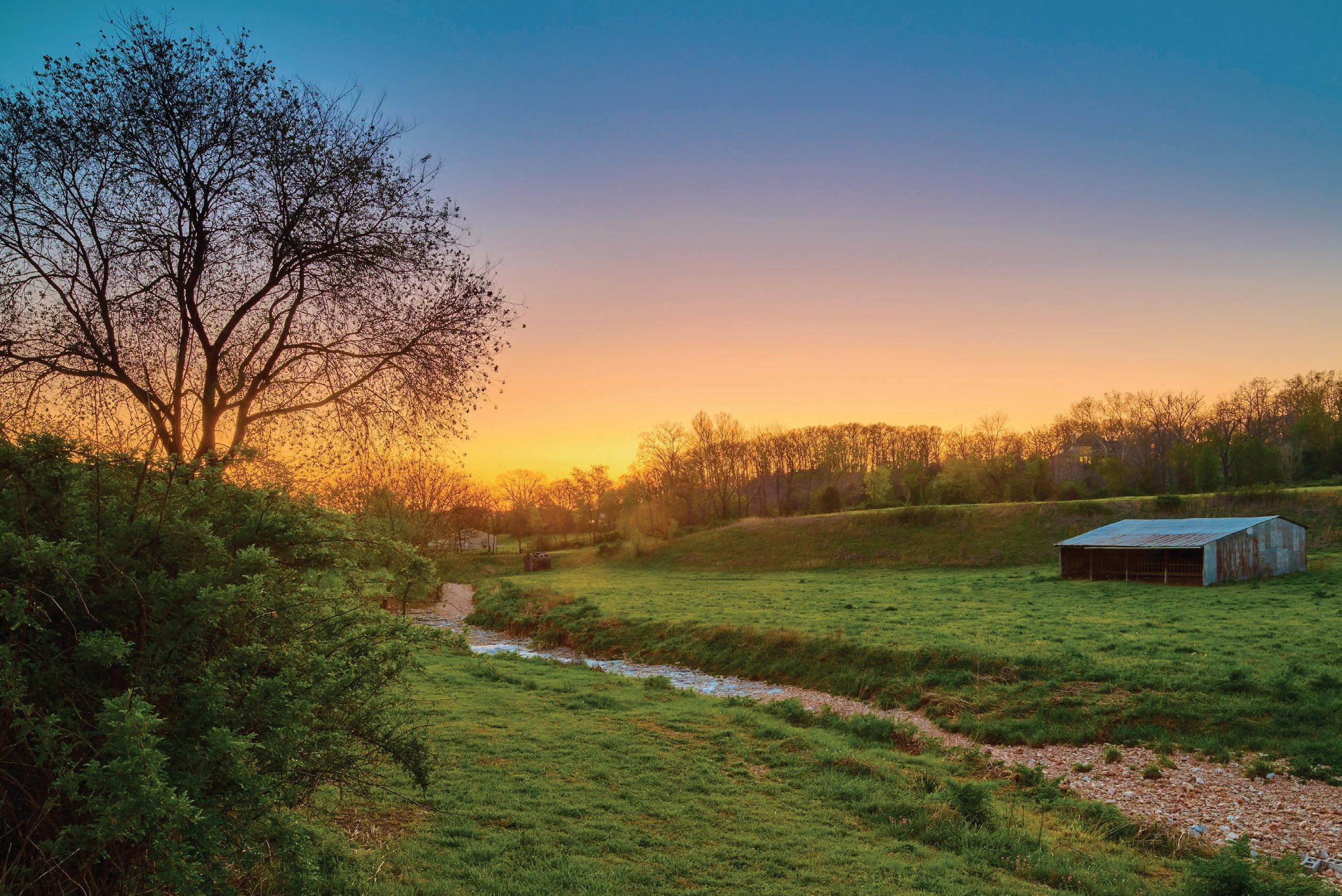
“I say this often to my friends, and it bears repeating: Agriculture is one of the great success stories of our state. The Arkansas Agriculture Hall of Fame is pleased to bring recognition to these individuals who have impacted our state’s largest industry in such a positive way.”
Enjoy this overview of each inductee from Class XXXVI.
GEORGE BERGER JR. WAS A SECOND-GENERATION rice, soybean and wheat farmer who taught at Arkansas State University from 1971-1981 and served as dean of the College of Agriculture. Berger started the plant breeding program at A-State and released dozens of varieties that helped farmers across the Midsouth. He helped start A-State’s agriculture master’s degree program, signed a collaborative agreement to share resources and educational staff from A-State and the University of Arkansas, and started a night school that could be attended by working professionals.
Soon after he left A-State, he founded the Eagle Seed Company, where his focus was private plant breeding and producing soybean seed in northeast Arkansas, Mexico and South America. Berger also returned to farming after leaving A-State. His children and grandchildren operate the farm and Eagle Seed Company today. Berger passed away April 16, 2002. The George A. Berger Memorial Scholarship at A-State was established in 2003 and continues to help deserving agriculture students.
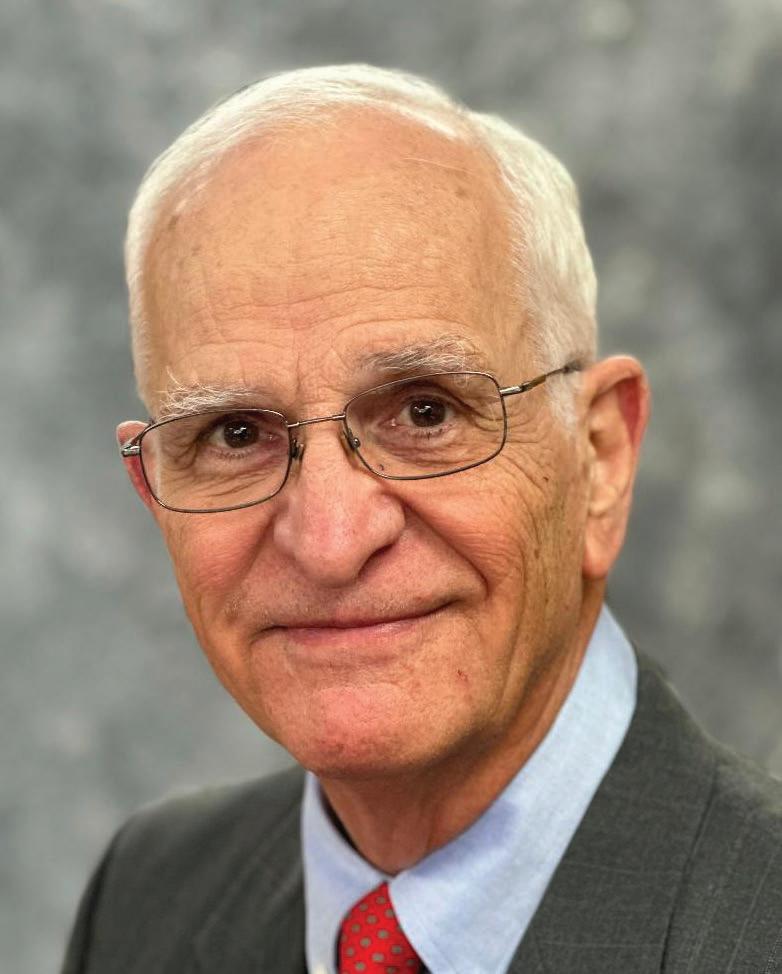
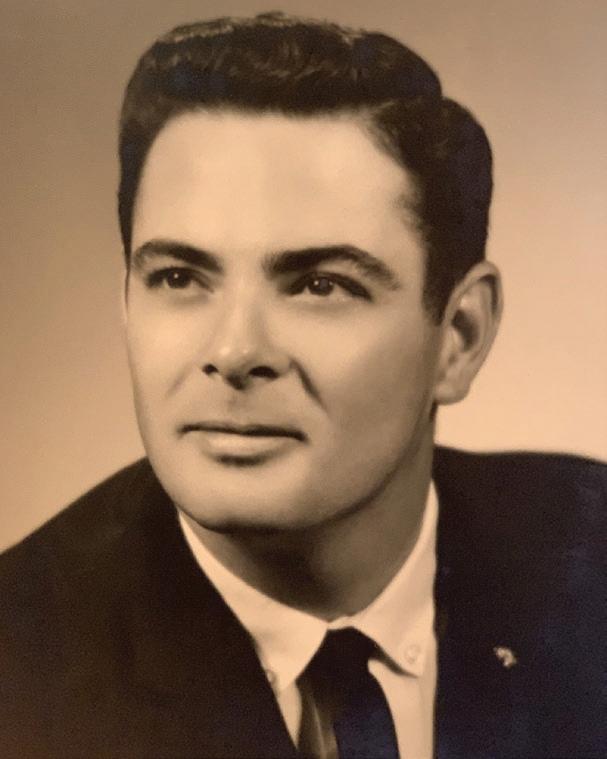
FRED BOURLAND HAS SPENT THE BULK of his life in an Arkansas cotton field where his work on genetic varieties has enhanced the profitability of farmers. He grew up on a cotton farm in Mississippi County, south of Manila (more specifically between Lost Cane and Whistleville). He went to the University of Arkansas, he says, to escape the cotton farm, though his studies there led him straight back to the cotton field, and Arkansas agriculture is the benefactor of that serendipity.
With Ph.D. in hand in 1978, Bourland went to work as an assistant professor and cotton breeder at Mississippi State University. In 1988, he came back to Arkansas as a professor to breed cotton varieties and teach at the Bumpers College of Agriculture. In 1997, Bourland moved to Keiser – roughly 10 miles from his family’s Mississippi County farm – to continue his cotton breeding and research program while serving as director for the Northeast Research and Extension Center. In 2016, he stepped down as director and now focuses all his energy on cotton variety development.
Including graduate school, Bourland has spent more than 50 years working the field he thought he was walking away from when he left for college.
His accolades are many, including the 2000 Genetics Research Award from the National Cotton Council, the 2010 International Cotton Researcher of the Year from the International Cotton Advisory Committee and the 2015 Cotton Research and Promotion Program Hall of Fame from the Cotton Board and Cotton, Inc., among others.
MARK COCHRAN SPENT 40 YEARS working to improve the productivity and profitability of Arkansas farmers and ranchers as a faculty member at the University of Arkansas, including 10 years as vice president of agriculture for the UA System Division of Agriculture.
Cochran served as chairman of the national Council for Agricultural Science and Technology, which awarded him the President’s Award. One of the most significant accomplishments of Cochran’s career was the creation of the COTMAN program, a computer-based cotton production guide widely used by farmers to help manage costs and improve yield efficiencies. He also led efforts to obtain funding for the construction of the Don Tyson Center for Agricultural Sciences in Fayetteville, the Northeast Rice Research and Extension Center in Harrisburg and the expansion of the highly successful Arkansas Discovery Farms program, which now encompasses 13 farms and delivers scientific analysis to help determine the effectiveness of on-farm conservation practices. Cochran came to Arkansas in 1982 to start his teaching career after earning his master’s and Ph.D. in agricultural economics from Michigan State University. He earned a bachelor’s degree from New Mexico State University.
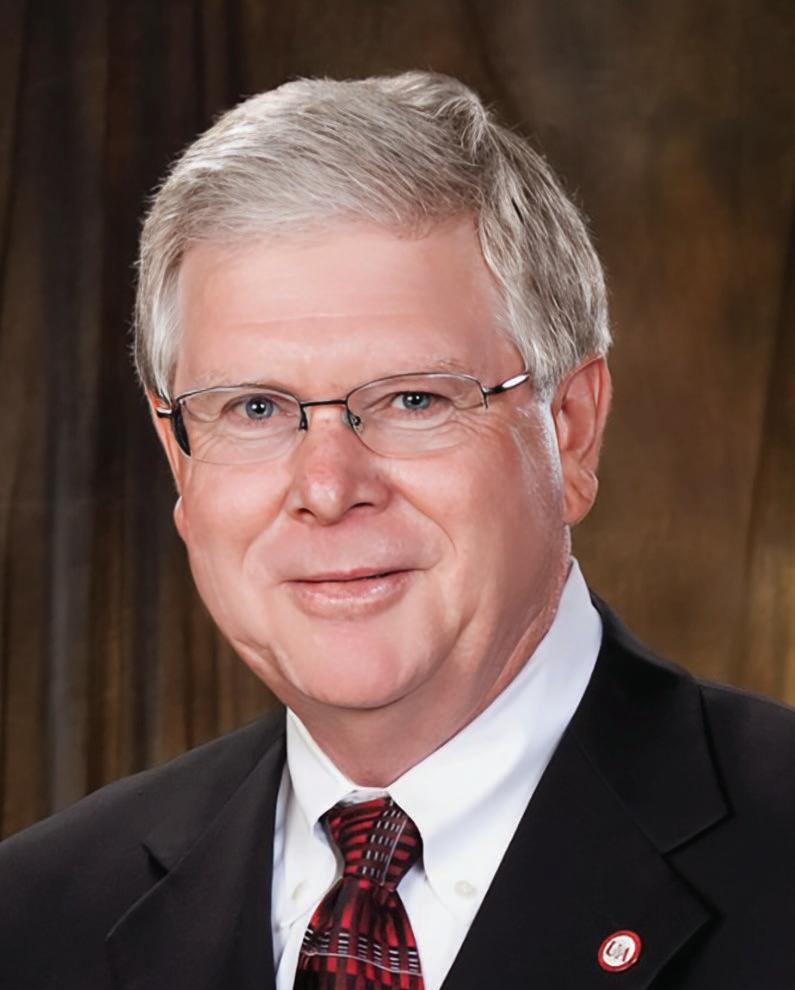
Hall of FAME
A NATIVE OF BISMARCK, MELVIN DANIEL SPENT 37 YEARS as an agriculture education teacher in Glenwood, Lake Hamilton and Foreman School districts, with 33 of those years spent at Lake Hamilton. He helped produce Lake Hamilton’s first FFA state officer, its first American Degree Recipient and trained 33 state-winning FFA judging teams. In his honor, Lake Hamilton has named its school farm The Melvin Daniel Lake Hamilton FFA Farm. After retiring from teaching, Daniel worked six years as the director of the Master Gardeners program with the Garland County Cooperative Extension Service. He also had a strong passion for raising Black Angus/Limousine cattle and spent a large amount of his time building up a quality herd. As a result of Daniel’s lifelong commitment to agriculture, he was awarded the Honorary Chapter FFA Degree, Honorary State FFA Degree and even the highest honor a nonFFA member can receive: The Honorary American FFA Degree. He was also named a County Agent of the Year and was recently inducted into the Legendary Owl Hall of Fame, which honors those who strongly and positively impact the future of agriculture in Arkansas. Daniel passed away Aug. 23, 2023.
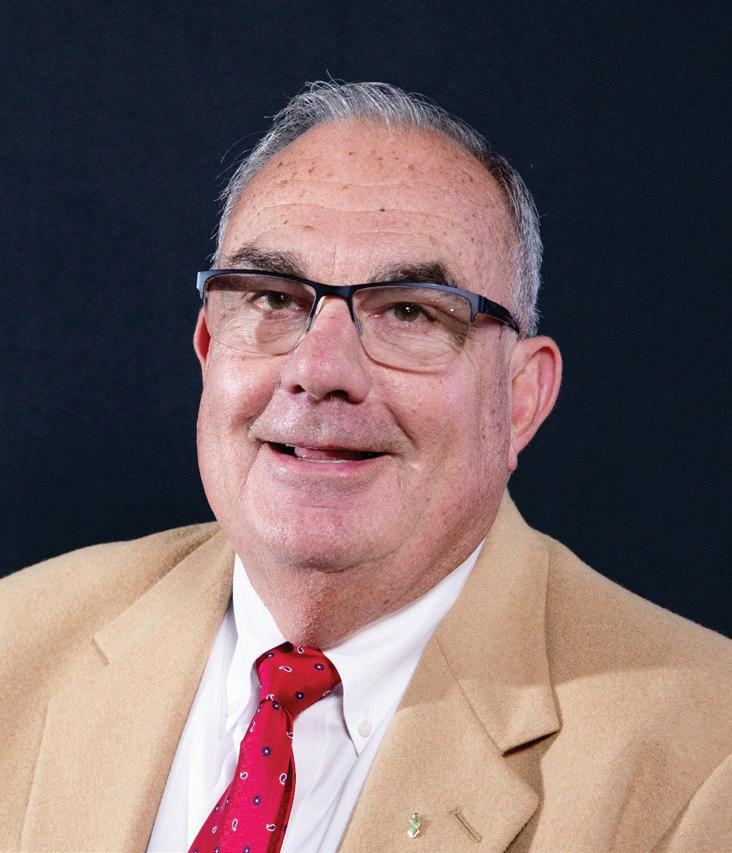
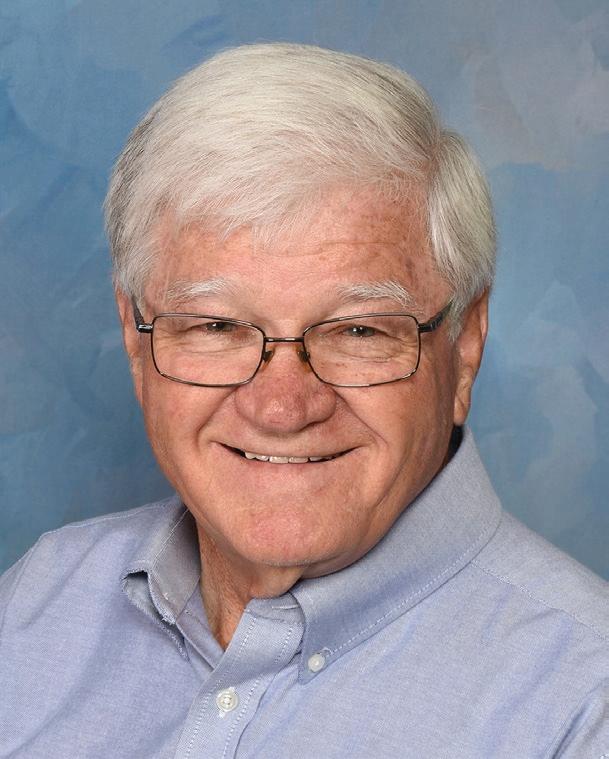
CATTLE HAVE BEEN A LARGE PART OF CHARLES LOONEY'S LIFE since he was a young boy in Camden. He is recognized internationally as an expert in cattle genetics and reproductive technologies. He spent 35 years in the industry in Texas before returning to his home state in 2018 as professor of cattle genetic improvement for the University of Arkansas System Division of Agriculture. His expertise centers on embryo transfer, in vitro fertilization, tissue banking for cloning, timed breeding and on-the-farm use of these technologies to improve beef cattle genetics.
Looney, an Arkansas native with graduate degrees from the University of Arkansas and Louisiana State University, founded two cattle genetics companies in Texas, namely OvaGenix and Ultimate Genetics, after serving as a scientist and consultant in the field for several years. While he was working for Granada Biosciences, he was part of the team that produced the first embryo-derived bovine clones. His work at Ultimate Genetics included the world’s first transgenic cloned calves and the first cloned bull. He has worked with cattlemen across the United States as well as Panama, Argentina, Australia, France, Great Britain, Mexico, India, Brazil and Columbia.
Looney earned the President’s Award for Outstanding Service from the American Embryo Transfer Association in 2019 and an Award of Distinction from the University of Arkansas in 2014. The Arkansas Cattlemen’s Association presented him with its Producer Education Award in 2022.
A FULL-TIME FARMER FOR MORE THAN 45 YEARS, Gary Sitzer has taken his love of agriculture beyond his Poinsett County farm and has served for 38 years as an Arkansas director for Farm Credit. He previously served as a member of both the Arkansas Soybean Research and Promotion Board and Arkansas Soybean Association board and currently serves on U.S. Rep. Rick Crawford’s Ag Advisory Committee. Sitzer was elected to serve on the Poinsett County Farm Bureau board of directors in 1976. While attending Arkansas State University, he took a full class load while also working on his family’s farm in Weiner. As chairman of the Arkansas Soybean Association, Sitzer led the launch of the soybean yield challenge, now known as “Grow for the Green,” which started with seven growers in eastern Arkansas more than 20 years ago and has grown to around 150 growers statewide today.
Sitzer also previously served on the Poinsett County Emergency Food and Shelter board. He graduated in 1985 from LeadAR, the UA Division of Agriculture’s rural leadership development program, and his family was named Poinsett County Farm Family of the Year in 1995.




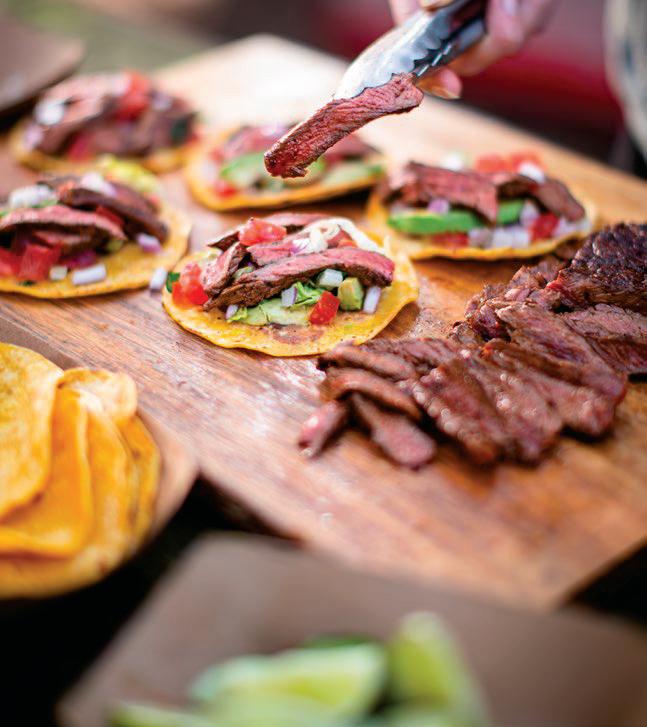
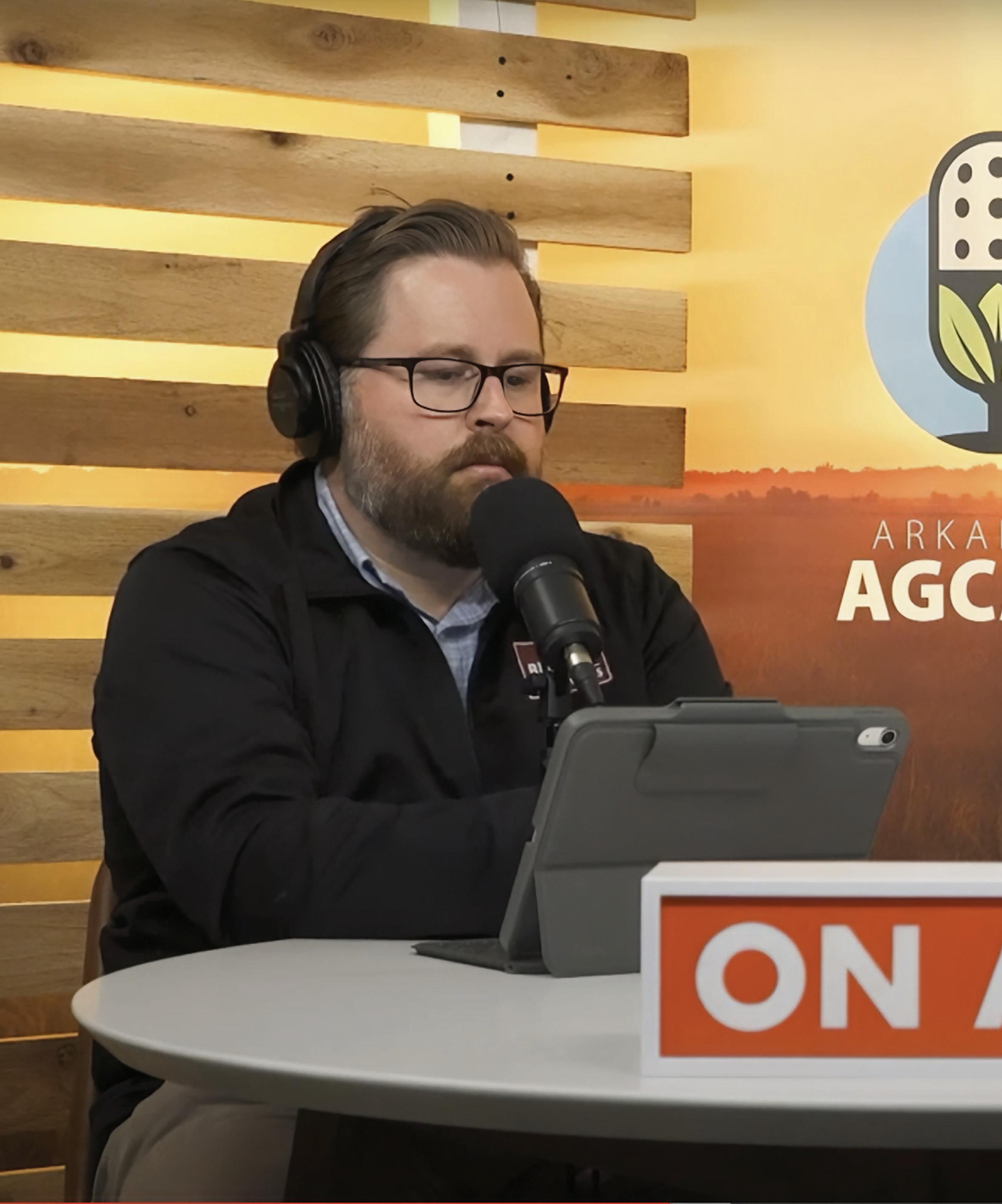
U.S. Senator John Boozman of Arkansas serves as ranking member of the Senate Committee of Agriculture, Nutrition and Forestry. This position enables him to play a key role in influencing policy that relates to the agriculture economy, nutrition programs and quality of life in rural America. Sen. Boozman recently sat down with Farm Bureau’s John McMinn for a Deep Dive segment of the Arkansas AgCast to talk about the status of the Farm Bill, its importance to all Arkansans, and the citizens of this country and efforts to set program in place that help secure our nation’s food supply.
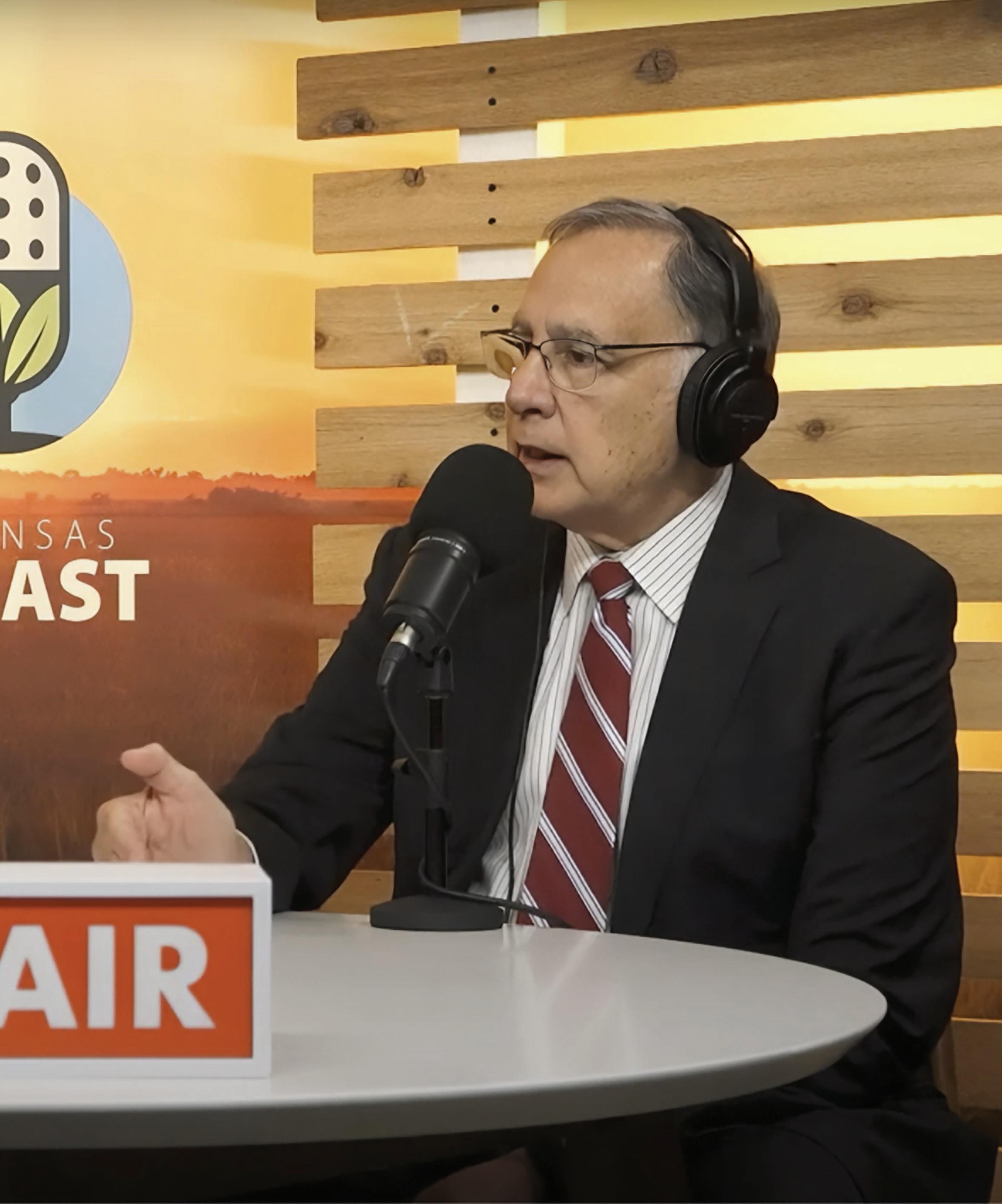
Q: Let’s start by giving us a state of the Farm Bill, if you will, and how you think the progress is going right now.
A: Well, we’re working really hard on it. I’ve got a great staff, and I’ve got a good relationship with Sen. Stabenow and, of course, we’re working on it. And then our house counterparts are also working on it – GT Thompson and Congressman Scott. So, we’re in a situation where I feel very strongly and I’ve had the opportunity to be, I think, in 18 or 19 states. We’ve got three or four more listening sessions.
It’s tough in farm country. You know that better than anybody. The risk management tools aren’t working. The 2018 Farm Bill is based on 2012 data. It’s a totally different world now, and so we’ve got to get that updated. We’ve got to be able
to make it so that the risk management tools work, so the farmers who want to continue farming can go to the bank and borrow the money they need. Then promoting trade research is so important, and there’s certainly the conservation aspect.
So, it’s a big job. It’s going to take some money. And so far, the other side has been resistant about actually wanting to provide more resources into the farm part of the Farm Bill. I was in North Dakota at a listening session and a lady was there and she said, “Senator, we need more farm in the Farm Bill.” And I totally agree with that. So that’s really where we’re at.
On the other hand, I know how important it is to give continuity and assurance to our farmers with the passage of
‘DEEP

“WE’RE BLESSED. We’ve got the cheapest, safest food supply of any place, but that’s all based on a healthy farm economy. A healthy farm economy is what rural America is all about.”
— SEN. JOHN BOOZMAN
a Farm Bill. People say, well, John, you’ve got to do something. And my retort to that is, no, we got to do the right thing. So, we’re talking about a five-year contract. It’s difficult now. Who knows what the world’s going to look like five years from now? We have to do the right thing.
Q: We know there are a lot of factors that could influence the Farm Bill process this year. Your counterpart, Sen. Stabenow, she’s retiring. We also know that it’s presidential election year, so a lot going on. Do you see us getting a Farm Bill in 2024?
A: Now, a lot of these big things, and this is big, I mean, this is a $1.5 trillion package, so it’s huge. A lot of these big things you feel like they’re going to get done. You don’t really understand how, but they get done. The good news is that the average, as I talk to people in Congress, in the House and the Senate, they want to get a Farm Bill done. Of course, it’s important to Democrats; it’s important to Republicans. Farm bills aren’t about Democrats and Republicans. It’s regions of the country, and it’s various commodities and putting all that together. So, the want to [pass it] is there. We’ve just got to hammer out the details, but we’re not going to get there unless we put more resources of that $1.5 trillion into the farm part. Right now, it’s about 85% nutrition and about 15% agriculture, and the numbers, they just don’t add up the way they need to.
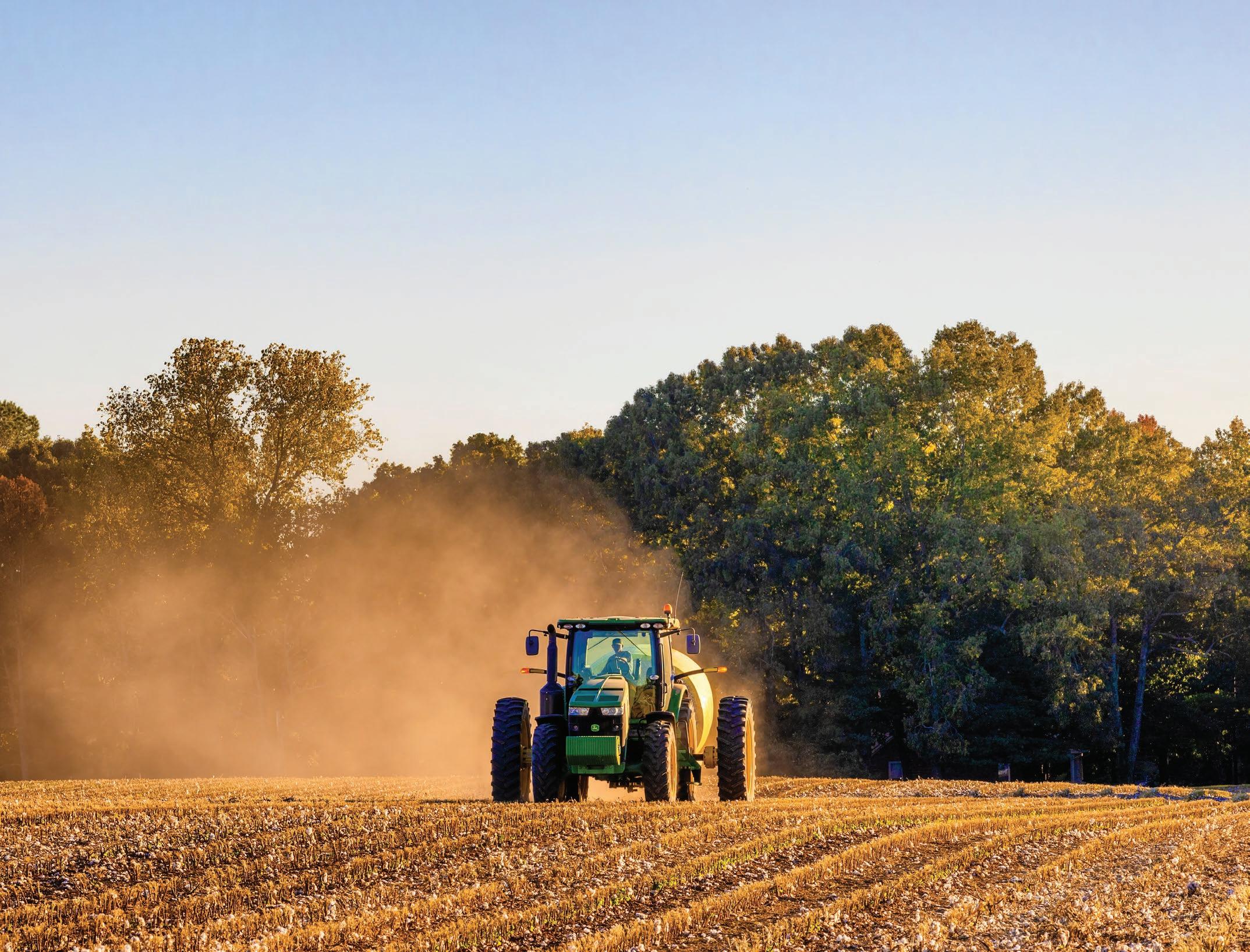
Q: I’ve read that you and your colleagues on the Republican side of the committee have been working on a framework for the Farm Bill, right? Can you tell us what you hope to achieve with that framework?
A: The priority is getting farmers, again, the risk management tools that they need. ... We’re blessed. We’ve got the cheapest, safest food supply of any place, but that’s all based on a healthy farm economy. A healthy farm economy is what rural America is all about. The other aspect that we hear a lot about, again, is research, which is the basis of us being so efficient. Making farmers more productive, which
they’re going to need to be as they go forward with these high input costs, and trade is so important – pulsing up the trade aspect. So that’s really where we’re at. Those are the things that we hear the most about and are committed to getting done.
Q: Is there anything else you want to provide?
A: I would say is that I do understand how important the Farm Bill is, and our farmers work so hard. I know how difficult it is. We’re in a situation now, biggest decrease in farm income ever last year. All the experts tell us that we’re going to have that much or more this year. So, it’s difficult, and we have to account for that. And that’s really what it’s all about, making sure our farmers have the tools they need in a very difficult time so they can go forward and provide what they’re providing – the cheapest, safest food supply.
I was asked to give a little comment to our conference not too long ago, so I talked about what we were trying to do, and I asked if there were any questions. And Marco Rubio — he’s the Republican ranking member on intelligence, and he said, “John, always remind them that food security is national security.” So, it’s easy to say these things, but it truly is what it’s all about.
There are so many reasons that we need to get a good Farm Bill done. We’re committed to doing it, and we appreciate Farm Bureau; we appreciate all they stand for and the tremendous job that they do.
Q: Is there anything outside of the Farm Bill that you’ve had your focus on or eye on?
A: Well, the big thing that we’ve been working on is, well, not ag appropriation, just appropriations in general. Getting our budget squared away. We got through with the, finally got through with the ‘24 budget, which started on October 1st. Here we’re six months into it, but that was big, and we were able to do that, I think in a successful way.
Now we’re looking at 2025 and so ag appropriations are a big part of that.


SUMMER IS HERE, which means a plethora of fresh produce! One vegetable typically seen in bulk every summer is wonderful zucchini. So, whether you grow it yourself, pick some up from the farmers market or when you visit Williams Corner in Walnut Ridge, try out this zucchini bread recipe for a refreshing twist on cooking with this veggie.
INGREDIENTS
• 2¼ cups granulated sugar
• 1 cup canola or vegetable oil
• 3 eggs
• 3 tsp vanilla extract
• 2 cups grated zucchini
• 3 cups all-purpose flour
• 3 tsp ground cinnamon
• 1 tsp salt
• 1 tsp baking soda
• 1 tsp baking powder
INSTRUCTIONS
• Preheat oven to 325 degrees.
• Spray two 8x4 loaf pans with cooking spray and set aside.
• Combine sugar, oil, eggs and vanilla in a bowl or mixer and blend until creamy.
• Add flour, cinnamon, salt, baking powder and baking soda to the bowl and mix until almost combined.
• Add the grated zucchini and mix until fully combined.
• Pour evenly into greased loaf pans. Fill the pans no more than two-thirds.
• Bake at 325 degrees for 45-55 minutes.
• Remove from the oven and cool on cooling racks. Remove from loaf pans after 30 minutes.
• After completely cooled, serve and store in an airtight container.
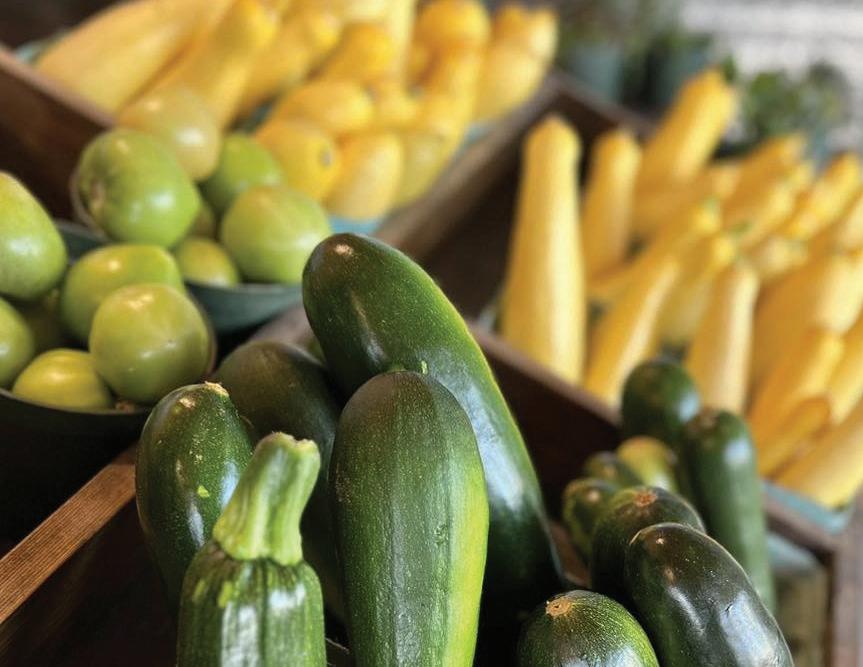


Are you traveling somewhere closer to home this summer? With these gas prices, I sure am!
As an Arkansas Farm Bureau member, you have access to great summer travel savings options at exciting regional attractions. For example, you can get discount tickets to great family entertainment options in Branson, Mo. Head to our website at www.arfb.com and see special







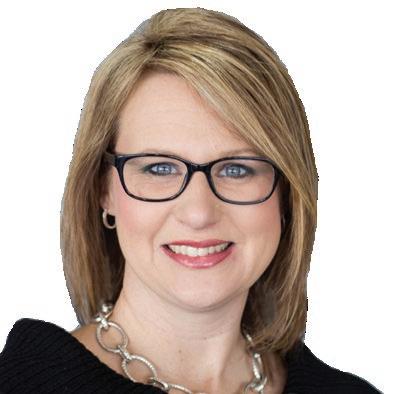
by Autumn Wood
rates on adult, children and family passes for the Titanic Museum. You will also find access to discount tickets for Silver Dollar City, Silver Dollar City’s White Water and Showboat Branson Belle. Don’t forget to also check out our discount hotel rates with the Wyndham Hotel group, Choice hotels and our all-new Travel Sherlock program before you go.
Savings are right at your fingertips, and now is the right time to use them. Have a safe and happy summer!





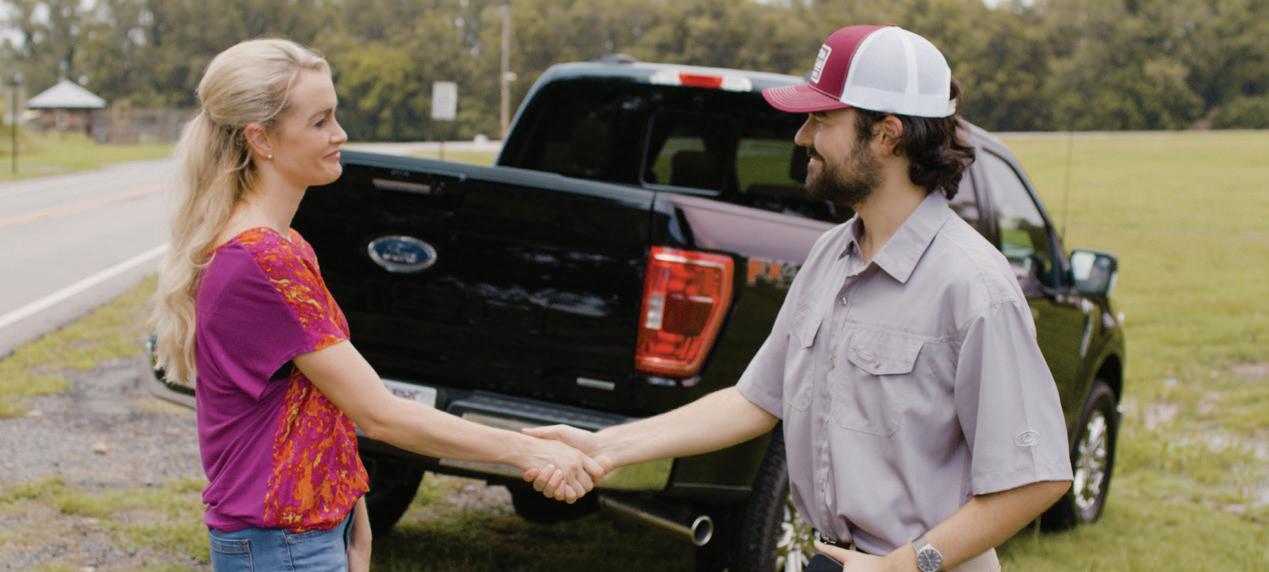
The 2024 County Farm Families of the Year have been announced as part of the 77th year of the statewide program.
Since 1947, the Arkansas Farm Family of the Year program has helped to recognize outstanding farm families throughout the state. The objectives of the Farm Family of the Year program are:
• To give recognition and encouragement to farm families who are doing an outstanding job on their farm and in their community.
• To recognize the importance of agriculture in the community and state.
• To disseminate information on improved farm practices and management.

Arkansas Family of the Year selection criteria include efficiency of production, conservation of energy and resources, leadership and agricultural and community affairs, home and farm improvement, and home and farm management.
Judges visit families to select district families of the year to be announced this summer. The state Farm Family of the Year is named in early December at the Farm Family of the Year luncheon in Little Rock.
The state winner represents Arkansas at the Expo Farmer of the Year in Moultrie, Georgia.
Three Arkansas families have claimed the Southeast Farmer of the Year honor over the past 16 years. Brian and Nan Kirksey of Amity (Clark County) claimed it in 2008; Wildy Family Farms of Manila (Mississippi County) won in 2016. The Cobb, Lyerly and Owen Family/Partnership of Lake City (Craighead County) took top honors in 2023.
Sponsors of the Arkansas Farm Family of the Year program are Arkansas Farm Bureau, the Electric Cooperatives of Arkansas and the Farm Credit Associations of Arkansas. Additionally, support for the program is provided by the Arkansas Agriculture Department, Arkansas Department of Career Education, Arkansas Press Association, University of Arkansas Division of Agriculture and the USDA’s Farm Service Agency, Natural Resources Conservation Service and Rural Development.
Program participation is open to all counties, and this voluntary participation varies, therefore there is not always a recipient for each county.
• Arkansas, North – Dean & Katie Jo Price Farms
• Arkansas, South – Jim & Heidi Craig
• Baxter – Ellie Lassiter
• Benton – Michael & Phillip Fletcher
• Boone – Billy Jack Burns
• Bradley – Nathan & Jodi Harrod
• Calhoun – Jeremy Martin
• Carroll – Tom & Neeley Butler
• Clark – Tim & Michelle Daniels
• Clay – Jeremy Wiedeman
• Cleburne – Eddie Whitehurst
• Cleveland – Jason & Ashley Boyd
• Conway – Strap & Leigh Ann Brents
• Craighead – Henry Dean & Jeff Finch
• Crawford – Jamie Marion
• Crittenden – Neal Williams
• Cross – Chris Wood
• Desha – Bradley Day
• Drew – Jason Cater Family
• Faulkner – Raymond & Karen Kelly
• Fulton – Cline & Ashley Hall Family
• Grant – Gator & Amber Denis
• Greene – Jeff & Linwood Wells
• Hempstead – Curtis & Melissa Bobo
• Hot Spring – Robert & Vikki Tankersley
• Howard – Billy Barton
• Independence – Danny & Cheryl Franks
• Izard – David Blakenship Family
• Johnson – Dylan & Allyson Jackson
• Lafayette – Stephen & Cindy Burton
• Lawrence – Adam & Chasity Wall
• Little River – Mark & Patty Welch
• Lonoke – Jordan & Mary Ellen Lynch
• Madison – Kenny & Rebecca Emitt Family
• Marion – Creekbend Farms
• Mississippi – Murry Henderson Family
• Monroe – Kortney & Megan Gray
• Nevada – Damon Williams
• Perry – Adam & Jill Blair
• Phillips – Neil & Blake Culp
• Polk – Tracy & Mary Standerfer
• Pope – Tony & Jennifer Haley
• Prairie – Stevie & Alison Kee
• Randolph – David Rawls
• St. Francis – Galen Geisler
• Sebastian – Joel Brent Cooper
• Sevier – Justin Craig
• Sharp – Dennis Walling
• Stone – Thane & Ashley Huyard
• Van Buren – Stacy & Lisa Kirk
• Washington – Larry & Be-Ann Walker
• White – Dana Martin Stewart Family
• Woodruff – Mike & Sheila Milton
• Yell – Len & Melinda Cullins

If you purchased Super S Super Trac 303 Tractor Hydraulic Fluid, Super S 303 Tractor Hydraulic Fluid, CAM2 Promax 303 Tractor Hydraulic Oil, and/or CAM2 303 Tractor Hydraulic Oil in Arkansas between December 1, 2013, and December 31, 2021, you may be a member of a class action that has been certified by a Federal Judge.
A Federal District Court has certified this case to proceed as a class action on behalf of all purchasers of Super S Super Trac 303 Tractor Hydraulic Fluid, Super S 303 Tractor Hydraulic Fluid, CAM2 Promax 303 Tractor Hydraulic Oil, and/or CAM2 303 Tractor Hydraulic Oil (“Smitty’s/CAM2 303”) in Arkansas who meet the class definition The lawsuit is part of a Multi-District Litigation (“MDL”) that is pending in the United States District Court for the Western District of Missouri The MDL is captioned: In Re: Smitty’s/CAM2 303 Tractor Hydraulic Fluid Marketing, Sales Practices, and Product Liability Litigation, MDL No. 2936, Case No. 4:20-MD-02936-SRB (U S Dist Court, W D Mo )
You are a member of the Arkansas Class if you purchased Smitty’s/CAM2 303 in Arkansas between December 1, 2013, and December 31, 2021 For certain exceptions to class membership, see the Arkansas Long Form N otice at www cam2supers303tractorhydraulicfluidclassaction com
The Arkansas Class Plaintiffs have sued Smitty’s Supply, Inc., and CAM2 International, LLC, (“Manufacturer Defendants”), alleging that they were negligent, breached express warranties, breached the implied warranty of merchantability, and were unjustly enriched Manufacturer Defendants have denied the allegations and all claims of wrongd oing A jur y has not yet decided which side will prevail
An Arkansas Long Form Notice, as well as more information on the lawsuit, the class definition, and your options are available at www.cam2supers303tractorhydraulicfluidclassaction.com or by calling (866) 742-4955. You do not need to do anything to remain in the Arkansas Class Anyone wanting to exclude oneself must take action and mail in an exclusion request by July 1, 2024 For an exclusion form and details on how to exclude yourself, see www cam2supers303tractorhydraulicfluidclassaction com or the Arkansas Long Form Notice You may request an Arkansas Long Form Notice be mailed to you by calling (866) 742-4955.
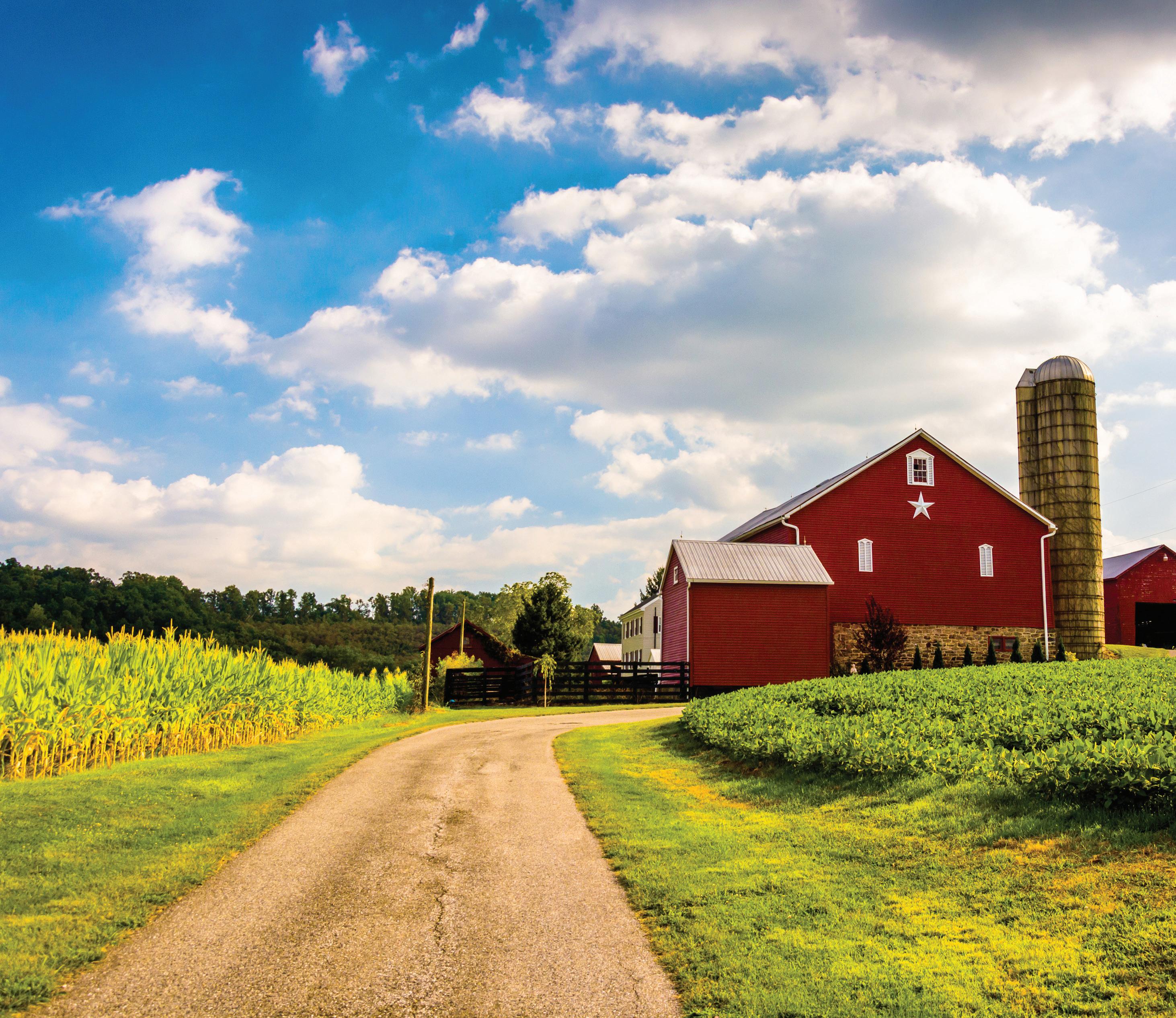

By TALYA TATE BOERNER
The salesman dipped the net into the water, scooped the goldfish we selected from those darting around in the tank and released the little fish into a clear plastic bag filled halfway with water. Before tying a knot in the top of the bag, he asked Momma if she wanted a second fish. “One for each girl? They’re only 50 cents apiece.”
“Only one, thank you,” Momma said, her voice as pleasant as someone who’d agreed to buy the whole aquarium full.
I wasn’t disappointed. My sister and I were good at sharing things and would have no problem sharing a goldfish. The idea that we were buying one at all was miracle enough. In my 12 years of experience, I’d learned miracles were flimsy little things, only one puff of breath past a dandelion wish.
It was one of those perfect spring days when the air was warm but not too hot, and the trees growing around the courthouse looked proud to be there. Walking to the car, Momma held the water bag in her hands like she was carrying a fallen bird nest to safety, the eggs still perched inside. We had been on our way to the eye doctor in Blytheville when Momma detoured to buy a goldfish at Sterling’s. I couldn’t get over it. The idea she would do such a thing when it wasn’t a holiday or birthday should have been my first clue that the day would take an unusual turn. But I couldn’t see past the thrill of a store-bought pet.
The previous spring, my sister and I found two tiny box turtles half-buried in mud in the ditch behind our house. We gave them a bath and kept them in a bowl of water on our bedroom dresser. After a week, Momma made us release them. She said they stunk up the house like something was dying. Momma could smell things we couldn’t.
My sister and I took turns holding our new fish all the way to Blytheville, trading off every time the song on the radio changed. When “Witchy Woman” came on, Momma turned up the music and we all sang along to The Eagles. Singing together like that while cotton and soybean fields blurred past the car windows made it seem like we were on a big adventure even though we were just going to the eye doctor.
When my next turn came to hold the fish, I held the water bag near my face. Our new pet looked at me with her round fish eyes, and for a moment, the whole world was reflected inside that watery bubble, all the hope and happiness and good parts of life. I wondered why Momma chose that day of all days to buy a fish for us. I didn’t think it was related to the good grades on our report cards or the turtles she wouldn’t let us keep. Nor did I believe Momma was in a supercalifragilisticexpialidocious

mood, one that made her look around the house and think, “What these girls need is a fish. Nope. Instead, I accepted the fish as a miraculous gift; Momma’s reason was her business.”
Momma parked in the back lot reserved for patients and told us to hurry. “We’re running late,” she said. Despite our begging, Momma refused to let us bring the fish inside the waiting room. Instead, she placed the water bag on the front floorboard, cracked the window to provide fresh air, and even locked the doors for good measure.
What happened next still baffles the three of us all these years later.
We weren’t inside the doctor’s office very long. When we returned to the car, the doors were still locked and the water bag was on the floorboard where Momma put it, undisturbed, still filled with water, and with the knot tied securely at the top. But…our fish was no longer in the water.
Momma lifted the bag, held it toward the sky, and stared at it.
If there was ever a time when the three Tate girls were simultaneously stunned by a single incident, that moment in Blytheville was it.
“Where’s our fish?” my sister whispered, astonishment reflected in her bottle-green eyes.
“She’s like Houdini. Or, a genie goldfish,” I said with a reverence reserved for disappearing things and unexplainable mysteries.
Nothing much was said on the drive home as we sat with the strangeness of what had happened. I held the bag of water in my lap and thought about things we get to keep and things never meant to be ours. What if the world really was inside the wet bubble, safe and silent? What if we were the fish-eyed ones gasping for air with cracked hearts and wounded places?
Back home, we placed the water bag on the kitchen counter and stared at it as though our goldfish might be hiding in plain sight. “We can’t just pour the water down the kitchen sink,” I said. “What if our fish possesses the power of invisibility, and she’s still swimming around in there?” After the day we’d had and the wonder we had witnessed, Momma emptied the water into the bowl that once held our turtles and placed it on the dresser in our bedroom. Deep down, I knew our fish was swimming somewhere better.
Later when Daddy came home for supper, we told him about our disappearing fish and showed him the empty water bag as evidence. Daddy had all the answers, and we thought surely he would have a logical explanation for our mystery. But not that day. He shook his head and said, “Some things aren’t meant to be understood.” Then he ate his supper.
The YF&R Achievement Award recognizes those who have excelled in their farming and ranching operations and exhibited outstanding leadership abilities. The award is designed for those involved in full-time production agriculture.
Finalists for two of Arkansas Farm Bureau’s Young Farmer & Rancher competitions have been announced, with the winners in each category scheduled to be announced at the organization’s midsummer Officers & Leaders Conference on July 25-26 in Jonesboro.
Both contests are designed to provide opportunities to give recognition for achievements in agriculture, business and leadership to young farmers and ranchers.

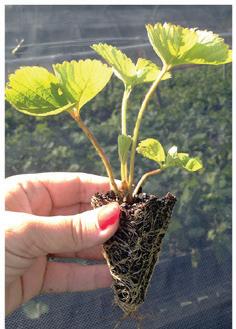

The Dilldines grow wheat, soybeans, cotton, corn and rice on 5,500 acres. Skiver is a registered nurse. The Dilldines love to try new restaurants and travel to spend time with family at the lake.

JOIN US at the Officers and Leaders Conference in July in Jonesboro to find out who wins the 2024 YF&R Excellence in Ag and
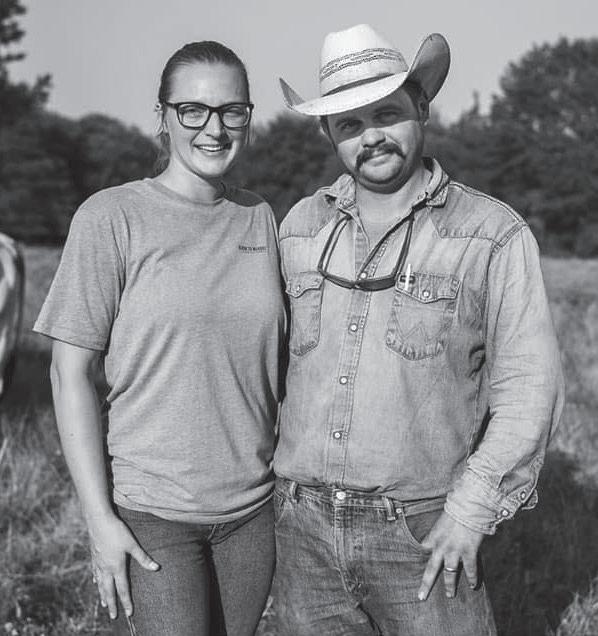
The Storys have an 851-acre farm where they run a 145-head cattle operation and 150 Black Belly and Dorper Cross sheep. They operate a liquid feed business, while Justin also works part time for other cattlemen in the area. They have three children.

Both Cody and Olivia are fifth-generation farmers, and they have cattle in Carroll, Izard and Sharp counties. They have a 1-yearold son, who is the proud owner of three cows and three sheep.

The YF&R Excellence in Ag contest recognizes the accomplishments of contestants that derive a majority of their income from efforts other than agriculture but are involved in farming.
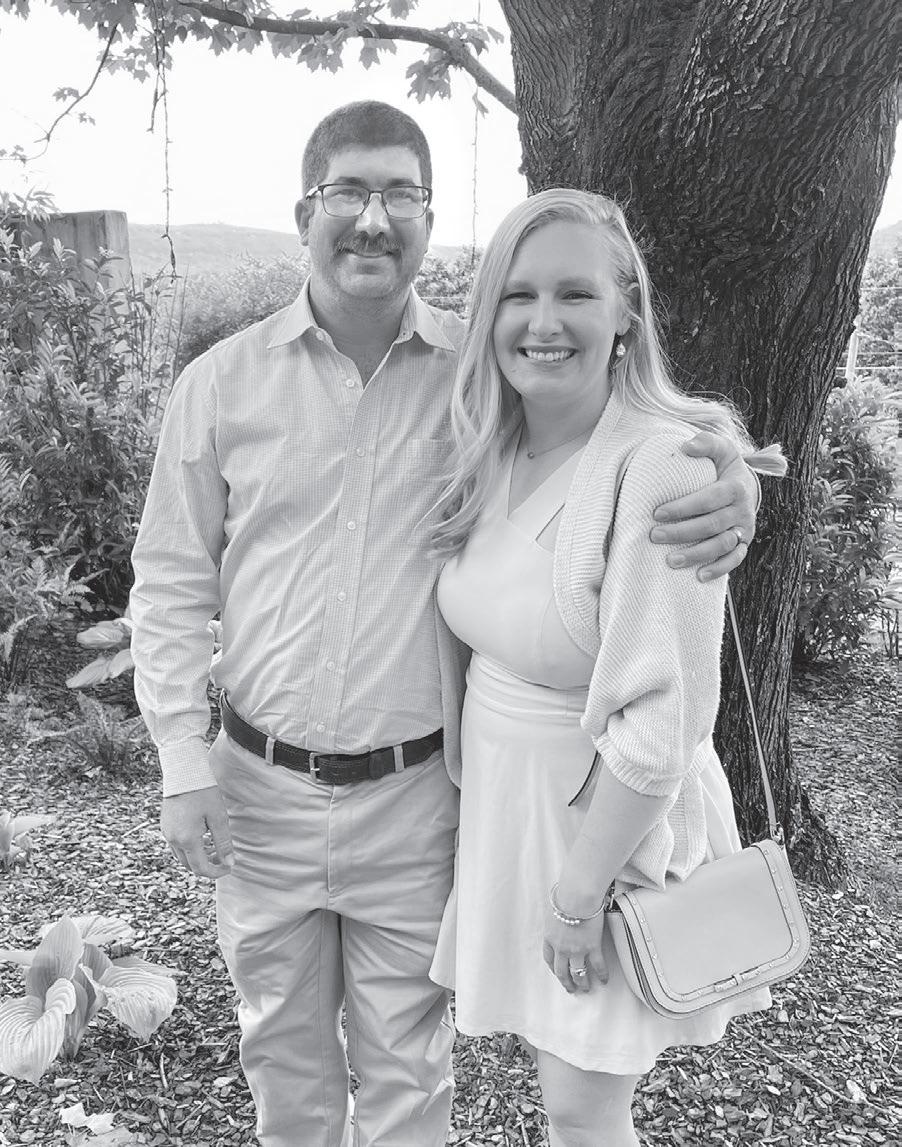
AND MALLORY MOIX
The Moixes have a 300-acre Bermuda grass hay farm and a run a 130-head cow/calf operation. Mallory works as a pediatric occupational therapist. They love to include their children in all their farming adventures.
JOIN US at the Officers and Leaders Conference in July in Jonesboro to find out who wins the 2024 YF&R Excellence in Ag and Achievement Awards.

Caleigh and her husband Coe have a small cow/calf operation and sell alfalfa hay from their farm in Buckner. Being raised on a beef and poultry operation, farming has always been a big part of Caleigh’s life. She is currently an agricultural loan officer for Farm Credit of Western Arkansas. They have one daughter.
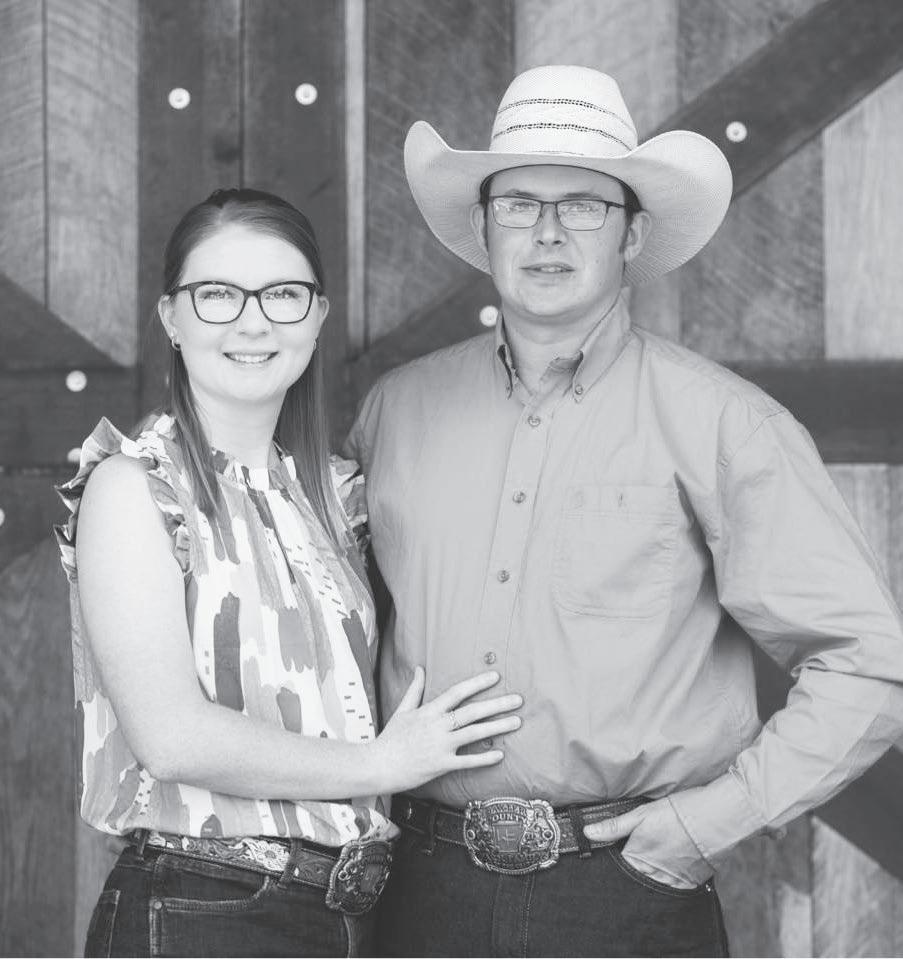
HANNAH WALKER
Hannah and her husband Cody have mixed cow-calf pairs, replacement heifers, bulls and feeder calves on their farm in Henderson. She is the financial secretary for the Mountain Home Public Schools Special Education Department. They have two children.

Meal Sponsor Drink Sponsor

Shooting Field Sponsors
Event Sponsors





